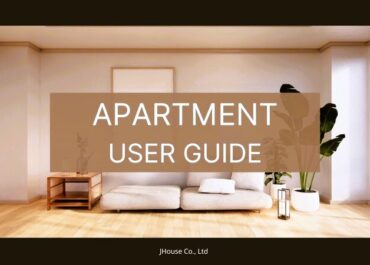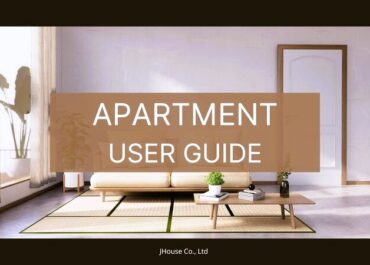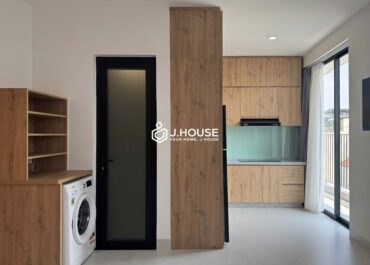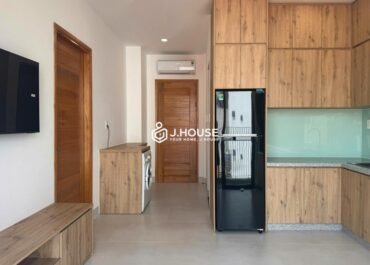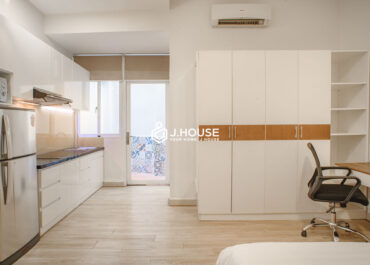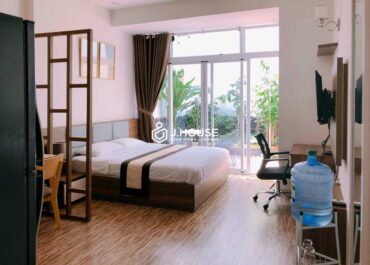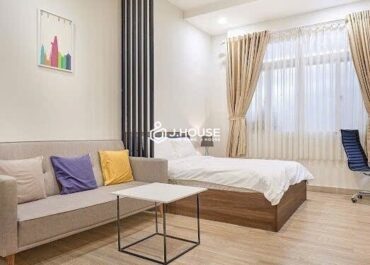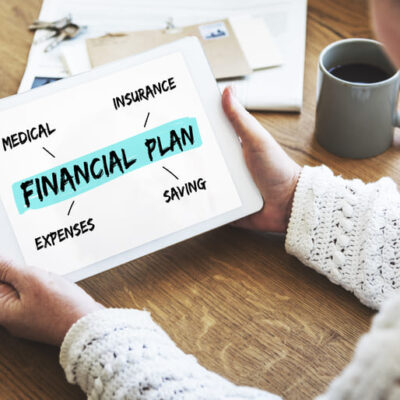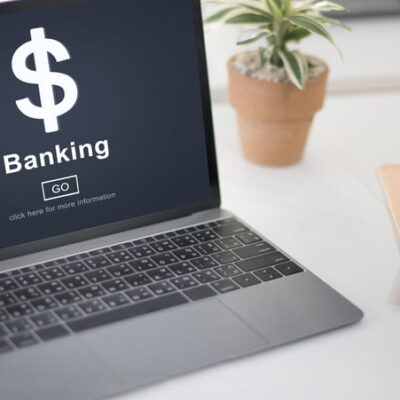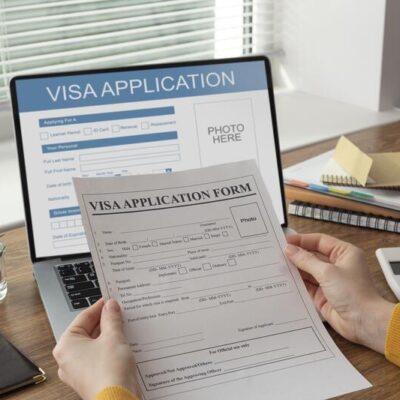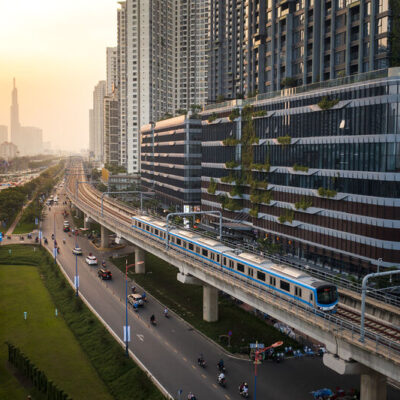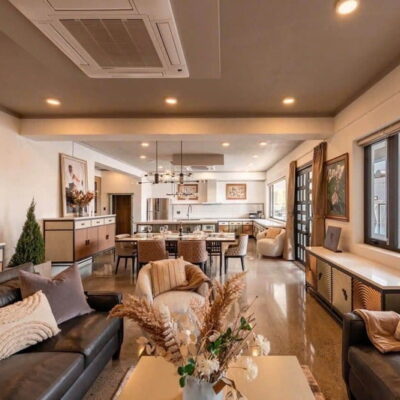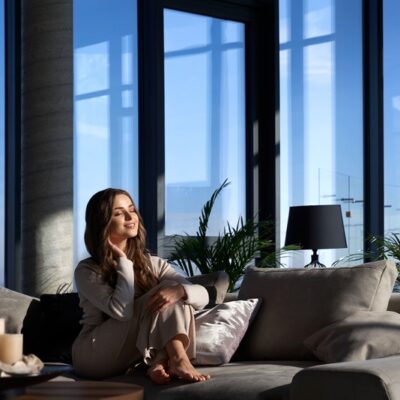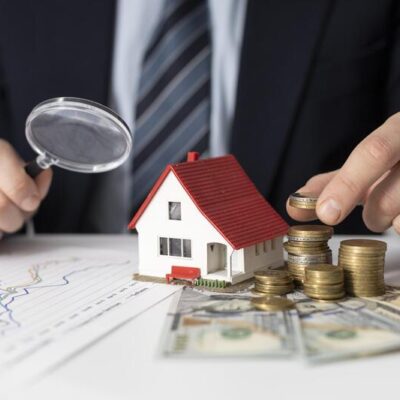Latest Properties
Apartment Hunting
Best Districts in HCMC for Long-Term Expats
Where Expats Live in HCMC: Best Districts for Long-Term Living
Best districts in HCMC for long-term expats aren’t just places to rent a home — they’re where a new life begins. From family-friendly areas to vibrant expat hubs, each district in Ho Chi Minh City offers a different rhythm, pace, and lifestyle.

Whether you’re settling down for work, raising a family, or simply seeking a better quality of life, choosing the right neighborhood is the first step to truly feeling at home. Your daily routine, social connections, and even sense of belonging all start with where you live. The right district can transform your experience in Vietnam, making life not only easier but also more fulfilling.
Let’s explore which districts offer the best mix of convenience, comfort, and connection for long-term expats in Saigon.
District 2 (Thao Dien): The Expat Favorite That Feels Like Home
It’s hard to talk about where expats live in HCMC without starting with Thao Dien — the soul of District 2. With leafy streets, riverside cafés, and top-tier international schools, this neighborhood blends global comforts with authentic local charm. It’s where cultures meet, not clash.
Why Expats Love It:
- British International School, ISHCMC, and EIS are all nearby
- Pet-friendly condos and stylish serviced apartments
- Vibrant community markets, art workshops, yoga spaces
- Organic grocers, cozy cafés, and walkable green streets

Living in Thao Dien feels like stepping into a peaceful, modern village inside the city — close to the buzz of Saigon, but far from its stress. For long-term expats — especially families, creatives, and remote workers — Thao Dien offers a unique sense of balance, connection, and quality of life that's hard to find elsewhere.
Read more: Thao Dien – The Ideal Living Paradise in Ho Chi Minh City
District 7 (Phu My Hung): Peaceful, Modern, and Family-Oriented
Phu My Hung, the centerpiece of District 7, has become a long-term haven for expats seeking structure, comfort, and a safer, quieter pace — especially those raising kids. With its wide sidewalks, master-planned streets, and landscaped parks, it feels like a well-designed suburb nestled within the city.
What Makes It Special:
- Clean, green, and walkable neighborhoods
- Family-friendly atmosphere and low traffic stress
- International schools and world-class hospitals
- Modern apartments with full services and security

This district is especially loved by Korean and Japanese expat communities, giving it a multicultural yet harmonious vibe. If your priority is stability, schooling, and a slower lifestyle without sacrificing modern amenities, District 7 offers one of the most livable environments in Ho Chi Minh City.
Binh Thanh District: Where Affordability Meets Urban Energy
For expats craving the buzz of downtown without its premium prices, Binh Thanh strikes the perfect balance. Nestled between Districts 1 and 2, it blends vibrant local life with fast-growing modernity — making it one of Saigon’s most dynamic, up-and-coming areas.
Why It Appeals to Expats:
- Quick connections to downtown and Thao Dien
- Affordable apartments, some with river or skyline views
- Diverse food scene, street markets, and trendy cafés
- Walking distance to Landmark 81 and Central Park

Binh Thanh draws in long-term expats who want authenticity with a touch of comfort. It’s especially ideal for singles, couples, or digital nomads who love the energy of the city but still want pockets of calm and culture. Here, you can start your day with Vietnamese street food and end it with wine on a high-rise balcony.
District 1: Downtown Convenience with an International Vibe
If you crave energy, action, and everything within reach, District 1 puts you at the heart of it all. Buzzing with cafés, embassies, coworking spaces, rooftop bars, and cultural landmarks, it’s the beating pulse of modern Saigon — a place where work, life, and play blur seamlessly.
Why Expats Choose It:
- Short walks to offices, trendy cafés, and nightlife
- A high number of English-speaking clinics, gyms, and stores
- Walkable streets and vibrant expat social circles
- Fastest internet and best business connectivity
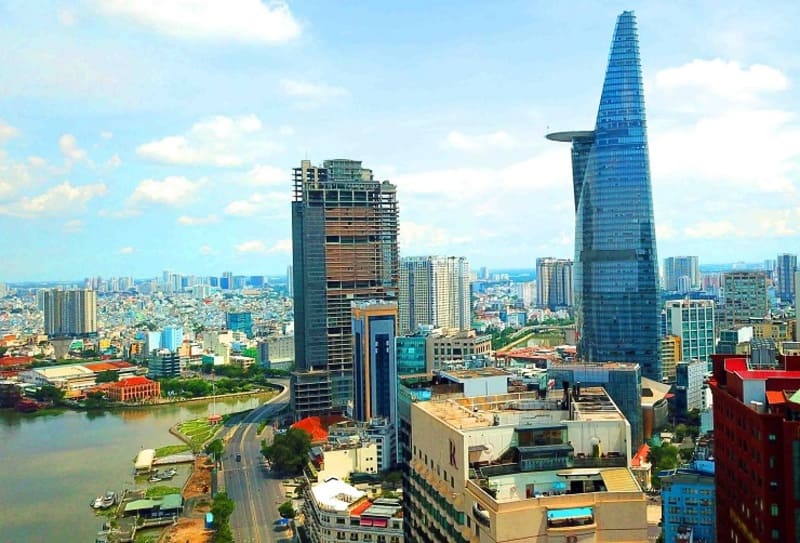
Yes, the rent can be steep — but the trade-off is unmatched convenience. Digital nomads, business travelers, and young professionals thrive here, drawn by the energy, the connections, and the chance to live in the city’s most iconic and cosmopolitan district. Life in D1 is fast-paced, exciting, and always just around the corner.
District 3: Local Vibe, Central Location, Quiet Streets
Want to live like a local but still be close to the action? District 3 strikes that rare balance. With its leafy boulevards, French colonial homes, and laid-back charm, it offers a slower rhythm of life — without sacrificing accessibility. It’s a neighborhood where mornings start with street-side coffee and evenings end in cozy bookshops or peaceful pagodas.
Highlights:
- Lower rent than D1, calmer than D5
- Known for indie cafés, art spaces, and temples
- Walkable streets filled with authentic Vietnamese food
- Minutes away from D1 and D10

District 3 is perfect for long-term expats who value cultural immersion, local lifestyle, and a touch of nostalgia — all while staying comfortably close to Saigon’s urban core. It’s not flashy, but it’s full of soul.
Other Districts Worth Considering
Not every long-term expat needs an international school nearby or a high-end grocery store around the corner. If you’re more budget-conscious, independent, or simply curious about the local rhythm of Saigon, a few lesser-known districts may surprise you:
Phu Nhuan sits quietly between major districts, offering an excellent location, reasonable prices, and a strong local vibe. It’s ideal for solo expats or couples who want quick access to the airport and city center, without tourist crowds.
Tan Binh, home to Tan Son Nhat International Airport, is practical for frequent travelers or those working in logistics or aviation. While not glamorous, it’s convenient and affordable.
District 10 offers a true taste of Vietnamese urban life. Affordable rentals, lively street food, and proximity to hospitals and universities make it appealing for teachers or expats in healthcare.
These districts may lack expat-centric amenities, but they offer something different: authenticity, affordability, and daily life beyond the bubble. And if you’re seeking a sweet spot between local flavor and modern comfort, Binh Thanh is often the best of both worlds.
Which District in HCMC Best Fits Your Lifestyle?
Choosing where to live in Ho Chi Minh City as a long-term expat is about more than rent — it’s about how you want to live each day. From commute times to community vibes, the district you choose will shape your lifestyle, relationships, and overall well-being. Here are some key things to consider:
1. Safety & Cleanliness Districts like Thao Dien (D2) and Phu My Hung (D7) offer low crime rates, clean streets, and peaceful environments — ideal for families, solo expats, and anyone seeking peace of mind.
2. Community Looking to connect? D2 and D7 are home to strong international communities with regular events, making it easier to build friendships and settle in.
3. Schools & Family Support If you have children, areas with international schools, parks, and kid-friendly infrastructure (like D2 and D7) should top your list.
4. Commute & Accessibility Binh Thanh strikes a good balance between affordability and access, with fast routes to D1 and the upcoming Metro Line 1 improving inter-district mobility.
5. Lifestyle Fit Prefer authentic, street-level Saigon? Consider walkable districts like D3. If you value modern comforts, wellness options, and international supermarkets, D2 and D7 are ideal.

Not sure yet? Check out some alternative districts for more budget-friendly or off-the-beaten-path options that may still match your needs.
Read more: Thao Dien vs Other Districts: Which Is the Best Choice?
Where Should You Live? A Quick Comparison Table
| District | Best For | Price Level | Lifestyle Vibe |
| D2 (Thao Dien) | Families, remote workers | $$$ (~800–1,500 USD) | Expat, international |
| D7 (Phu My Hung) | Families, safety-focused | $$$ (~800–1,500 USD) | Quiet, multicultural |
| Binh Thanh | Couples, budget-savvy | $$ (~300–800 USD) | Mixed, young locals |
| D1 | Professionals, nightlife | $$$$ (~>1,500 USD) | Busy, energetic |
| D3 | Culture seekers, creatives | $$(~300–800 USD) | Local, artsy |
Note: Prices are approximate and may vary depending on size, amenities, and housing type.
Looking for more affordable or off-the-radar districts? Check out our section on “Other Districts Worth Considering” for options like Phu Nhuan, Tan Binh, and District 10.
Explore more: Apartment Rental Costs in Thao Dien: The Right Price for You
Final Thoughts: Start Your Life Right — In the Right District
Finding the best district in HCMC for long-term expats isn’t just about geography — it’s about choosing the kind of life you want to build. The riverside calm of Thao Dien, the global pulse of District 1, or the community warmth of Phu My Hung… each offers a unique way to feel at home in Vietnam.
No matter your budget, background, or lifestyle, there’s a place in this city where you can belong — and thrive. Whether you’re here for a few years or a lifetime, where you live will shape how you feel — and how fully you enjoy Vietnam.
Let JHouse guide you to the right neighborhood, the right apartment, and the right start to your long-term life in Saigon.
Your new chapter begins with the right location. Let’s find it — together.
JHouse Content Team
The in-depth content development team on housing services for foreigners & Vietnamese in Vietnam. The content is simple, easy to understand, and logically arranged to bring readers useful topics and information from real experiences.
Long-Term Budgeting in Vietnam: Monthly Costs & Smart Saving Tips
Expat Budget Vietnam: Smart Monthly Planning & Saving Tips
Thinking of making Vietnam your long-term home? Long-term budgeting in Vietnam can make a world of difference if you plan smartly from the start. Between rent, daily meals, transport, and unexpected healthcare costs, it’s easy to lose track — especially when everything feels new.
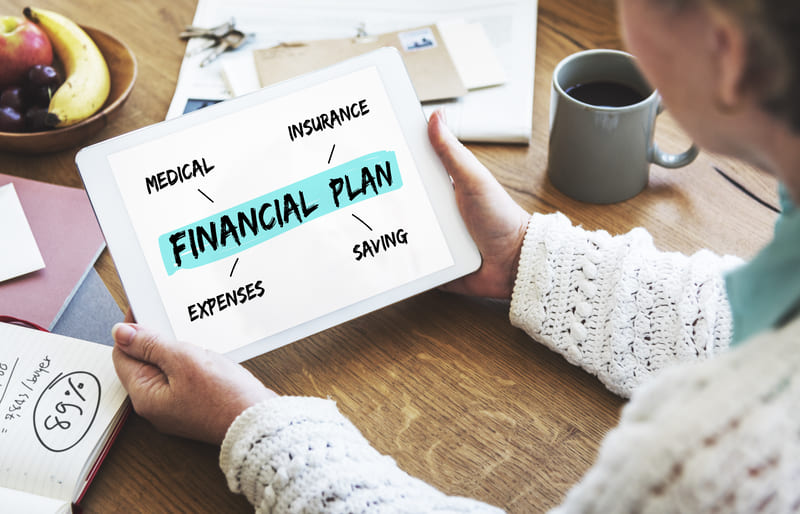
But here’s the good news: Vietnam offers a rare mix of affordability and quality of life. With a bit of planning and the right mindset, you can stretch your money further without sacrificing comfort or enjoyment. Whether you’re living solo or supporting a growing family, understanding your financial flow is key to feeling settled and confident in your day-to-day life.
This guide breaks down real monthly expenses and offers practical tips to help you build a budget that fits your goals and lifestyle.
Let’s explore what it costs to live well — and wisely — in Vietnam.
Understanding the Cost of Living in Vietnam
Vietnam is famously affordable — but how affordable depends on where you unpack your bags and how you live your daily life. Major cities like Ho Chi Minh City and Hanoi come with modern conveniences and fast-paced lifestyles — but also higher price tags. In contrast, smaller cities such as Da Nang, Nha Trang, or more rural towns can offer significantly more budget-friendly options for expats.
To give you a clearer idea of what to expect, here’s a breakdown of estimated monthly costs for a typical expat living in Ho Chi Minh City:
| Expense Category | Estimated Monthly Cost |
| Rent (1BR apt, expat-standard) | $400–700 |
| Utilities & Internet | $50–100 |
| Food & Groceries | $200–300 |
| Transport (Grab, Bus, Bike) | $30–70 |
| Healthcare & Insurance | $50–150 |
| Leisure & Miscellaneous | $100–200 |
| Total | $830–1,520 |
While these numbers offer a general guide, your actual lifestyle choices can push your budget higher — or help you save big. Let’s explore each category and how you can optimize your spending.
Read more: Long-Term Living in Vietnam: A Settling Guide for Expats & Families
Housing: The Largest Piece of Your Budget
When it comes to monthly expenses in Vietnam, rent is usually the single biggest line on an expat’s budget — and the one with the most room for smart decisions.
Rental prices vary greatly depending on the city, district, and type of apartment you choose. For example, a one-bedroom unit in expat hotspots like Thao Dien or District 1 (HCMC) might cost $600–800/month, while more local areas like Binh Thanh or District 7 offer similar comfort for $400–600.

If you're looking to reduce housing costs without sacrificing comfort, consider these smart strategies:
- Choose serviced apartments with included utilities for simpler budgeting.
- Share a home with roommates or opt for smaller units.
- Use platforms like JHouse to find verified, expat-friendly rentals.
By choosing wisely, your home can be both comfortable and cost-efficient — a solid foundation for long-term budgeting in Vietnam.
Utilities & Internet: Budget-Friendly and Reliable
Utilities are one of those hidden costs that can quietly eat into your budget — especially during Vietnam’s hot and humid seasons. Electricity, water, and high-speed internet are generally affordable here, but careless use (especially of air-conditioning) can drive up monthly expenses faster than you expect.
Smart tips to keep your bills in check:
- Use AC wisely — set it to 26–28°C and turn it off when leaving the room.
- Check if your rent includes electricity, water, or Wi-Fi — many serviced apartments do.
- Bundle mobile data and home internet plans through one provider to get better rates.
Keeping an eye on these small details helps you stay within budget and avoid unexpected monthly spikes — leaving more room for the things you love.
Food & Groceries: Where You Can Truly Save
For just $2, you can sit on a small roadside stool, slurp a flavorful bowl of phở, and soak in the street life — all while staying well within budget. Vietnamese street food is not just delicious — it’s one of the best ways to save money without missing out on culture.

If you prefer to cook with fresh produce, it's surprisingly affordable at local markets. Just be mindful: prices can double at international supermarkets, especially for imported goods.
Suggested budgeting:
- Street food & local meals: $100–150/month
- Groceries (local + imported): $100–150/month
Want to keep costs down without compromising on freshness? Try cooking at home and shopping at traditional markets, where you’ll find seasonal ingredients at unbeatable prices.
Transportation: Low-Cost & Flexible
Zipping through traffic on a motorbike might look like the ultimate Vietnam experience — and for many expats, it is. But before you jump in, consider the easier, low-cost alternatives. For new arrivals, busy traffic and unfamiliar road rules can make driving risky — which is why many choose ride-hailing apps or public transit instead.
Here's what you can expect to spend on transportation each month:
- Grab rides within the city: $1–3 per trip
- Monthly fuel (if riding your own bike): $20–30
- Monthly Grab use: ~$50
- Public bus fare: ~$0.30 per ride
Want more savings and control? Consider investing in an electric bike or a monthly Grab Pass — both can help reduce commute costs over time while keeping things flexible and stress-free.
Healthcare & Insurance: Don’t Skip This
When you’re living far from home, peace of mind about your health becomes priceless — and in Vietnam, it’s easier to achieve than you might think. The country offers generally affordable healthcare, with high-quality private hospitals and clinics in major cities.
However, without the right insurance, even a short hospital stay or emergency procedure can drain your budget fast — especially if you rely on international-standard services.
Here’s a quick look at what common healthcare costs might look like for expats:
- International expat insurance: $50–150/month
- Out-of-pocket doctor consultations at local clinics: ~$20–40 (excluding tests or medication)
- Dental cleanings: ~$15–25
- Emergency care: $200–500+ (without insurance)

Tip: Look for a plan that includes both outpatient and emergency coverage — and always check the fine print before signing up. It’s a small step that can make a big difference when you need it most.
Read more: Healthcare in Vietnam for Expats: Insurance & Hospital Tips
Leisure, Fitness & Personal Expenses
Living in Vietnam doesn’t mean cutting out the fun — in fact, you might enjoy more for less. A night out with drinks might cost just $10–15, while gym memberships start at $20 for local spots and go up to $60+ at international-standard clubs. Personal care is also wallet-friendly by Western standards — think $5 haircuts or $10 massages.
Most expats spend between $100–200 per month on lifestyle extras — but that number depends entirely on your habits. Yoga in the park? Free. Imported wine every weekend? Not so much.
Find your balance by mixing free local pleasures — like riverside walks, local festivals, or public workouts — with the occasional splurge that truly brings you joy.
Budgeting Tips for Expats in Vietnam
Ready to take control of your finances? Here are five practical steps to help you budget smarter — and live better — in Vietnam.
1. Track Every Đồng – Awareness Is Everything
Use apps like Spendee, Money Lover, or even a simple Google Sheet to log all expenses for the first 2–3 months. You can’t fix what you don’t track.
2. Set Spending Limits by Category
Try the 50/30/20 rule:
- 50% for essentials (rent, food, transport)
- 30% for lifestyle (fun, shopping)
- 20% for savings and emergency funds
3. Use Vietnamese Banking Wisely
Opening a local bank account reduces transaction fees and simplifies everyday payments. Local banking makes things like Grab rides, QR shopping, and rent transfers smoother. Consider Vietcombank, ACB, or TPBank.
Read more: Open a Bank Account in Vietnam: A Guide for Expats
4. Plan for Emergencies
Set aside at least 3 months of living expenses — especially if you're on a short-term visa or freelance income. It’s your cushion against the unexpected.
5. Set Savings Goals
Whether you're saving for travel, family, or business investment, give each goal a monthly target. A clear goal turns saving from a chore into motivation.
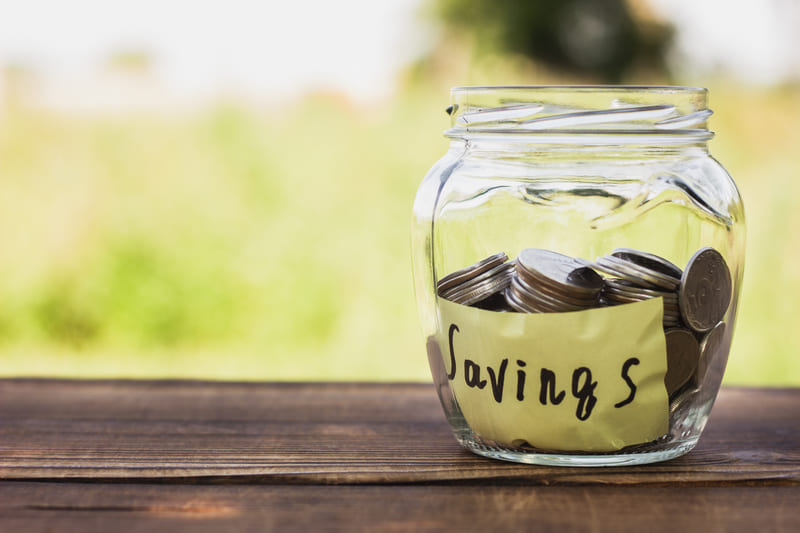
Living on a Budget vs. Living Well
Living well on a budget isn’t just possible in Vietnam — it’s surprisingly easy if you know where to look. Many expats wonder: Can I enjoy life here while keeping my spending in check? The answer is a confident yes — as long as you plan mindfully and make conscious choices.
Vietnam gives you more than just affordability — it offers a lifestyle where comfort, culture, and connection all come without the hefty price tag. You can enjoy quality healthcare, modern housing, vibrant local food, and meaningful experiences at a fraction of what you’d pay in many Western countries.
With the right mindset and a flexible plan, you don’t have to choose between saving money and living meaningfully — you can do both.
Sample Monthly Budgets (in USD)
Not sure where your budget might land? Here’s a rough breakdown based on lifestyle and location — from minimalist living to full-on family life:
| Lifestyle Type | HCMC Budget | Mid-size City (e.g., Da Nang) |
| Minimalist Digital Nomad | $700–900 | $600–800 |
| Working Professional | $1,000–1,400 | $850–1,100 |
| Expat Family (2+ kids) | $2,000–3,000 | $1,500–2,300 |
These estimates are flexible — so feel free to adjust them based on your priorities, preferences, and stage of life in Vietnam.
(Note: These ranges don’t include personal travel, international school fees, or premium insurance plans.)
Pain Points to Avoid
Even the most careful expats can slip up — especially when adjusting to a new culture, currency, and pace of life. Here are a few common pitfalls to watch out for:
- Underestimating visa/travel costs — flights, visa runs, and renewals can quietly eat into your savings
- Not including healthcare — skipping insurance or medical budgeting can backfire when the unexpected hits
- Over-relying on imported products — everyday items like cheese, wine, or shampoo can cost double or more
- Losing track of daily cash spending — small street purchases add up fast when you’re paying in notes, not clicks

Spotting these early helps you stay in control — and make confident financial decisions throughout your time in Vietnam.
Final Thoughts: Build a Life, Not Just a Budget
Budgeting wisely isn’t about restriction — it’s about intention. Long-term budgeting in Vietnam isn’t just about cutting costs — it’s about building a lifestyle that supports your goals, values, and wellbeing.
From choosing a cozy apartment in the right neighborhood to enjoying street food nights and weekend trips, your money can work for your happiness — not just your survival. With thoughtful planning and a few local insights, Vietnam can be not only a place to live — but a place to truly thrive.
Let JHouse be your trusted partner in building a vibrant and fulfilling long-term life in Vietnam.
JHouse Content Team
The in-depth content development team on housing services for foreigners & Vietnamese in Vietnam. The content is simple, easy to understand, and logically arranged to bring readers useful topics and information from real experiences.
Raising Kids in HCMC: Guide for Long-Term Expat Families
Living in HCMC with Children: A Practical Guide for Expat Families
Raising kids in HCMC comes with both opportunities and challenges for long-term expat families. From choosing the right school to adapting to local customs, building a life for your children in Vietnam’s busiest city requires thoughtful planning and cultural awareness. But with the right guidance, parenting in Ho Chi Minh City can be not only possible — but truly rewarding.

Whether you're navigating school choices, exploring healthcare options, or searching for family-friendly neighborhoods, this article offers practical insights to help you thrive. You’ll find tips on everything from cultural integration and community support to affordable childcare and weekend activities — all designed to support a happy, balanced family life in HCMC.
A Family Life Like No Other
Living in HCMC with children is not quite like anywhere else in the world. The city is vibrant, energetic, and full of contrast — where traditional Vietnamese life blends with modern, international influences. For expat families, this means a unique opportunity to raise bilingual, culturally flexible kids who can navigate the world with open minds.
From street markets to skyscrapers, from neighborhood parks to international events, Ho Chi Minh City offers a dynamic environment that stimulates learning and adaptation from an early age. But thriving in this environment means more than just adjusting — it means rethinking what family life looks like in a city that never stands still.
For families planning to stay long term, building a strong foundation begins with understanding how parenting works here — in both its challenges and its beautiful surprises.
Choosing the Right Neighborhood
When raising kids in HCMC, choosing the right neighborhood can shape your entire family experience — from daily convenience to long-term comfort. Thankfully, the city offers several family-friendly neighborhoods that cater to the needs of expat families:
- Thao Dien (District 2): Often considered the best area for expats with children. It has top international schools, quiet tree-lined streets, Western-style supermarkets, and a strong community of foreign families.
- District 7 (Phu My Hung): Known for its clean streets, modern condos, and family-oriented layout. This area is home to many Korean, Japanese, and Western families.
- Binh Thanh District: More local in flavor but offers modern apartments near the Saigon River and easy access to central districts.
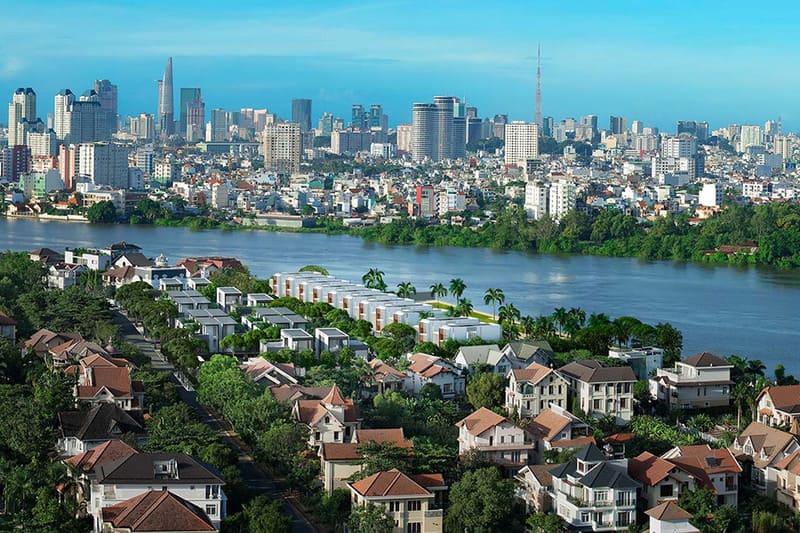
Look for places with green spaces, proximity to schools, playgrounds, and low noise levels. Family-friendly neighborhoods in HCMC also often host kids’ events, markets, and social meetups — helping both children and parents connect.
Read more: Best Districts in HCMC for Long-Term Expats
Navigating the School System
Schooling is one of the biggest investments expat parents make — and in HCMC, the options are impressively diverse. Fortunately, the city is home to a wide range of international schools in Vietnam, offering curricula from British, American, French, Australian, to IB programs.
Popular International Schools:
- British International School (BIS) – District 2
- International School of HCMC (ISHCMC) – District 2
- Saigon South International School (SSIS) – District 7
- Lycée Français International Marguerite Duras (LFID) – District 9
- European International School (EIS) – District 2
When selecting a school, consider:
- Language of instruction
- Curriculum (IB, IGCSE, AP, etc.)
- Tuition and transport options
- Class size and teacher qualifications
- After-school activities and campus security
Many expat parents prioritize bilingual learning to raise multicultural or third culture kids — children who grow up grounded in both their home culture and their host country. With so many excellent choices, it’s worth visiting campuses, talking to other families, and choosing a school environment where your child can truly thrive.
Read more: International Schools in Thao Dien – Advantage for Expats
Healthcare for Kids in HCMC
Accessing reliable child healthcare services for expats in HCMC is easier than ever — and continues to improve each year. The city offers a growing network of international clinics and private hospitals that provide pediatric care with English-speaking staff, modern equipment, and family-friendly service.
Recommended Hospitals & Clinics:
- FV Hospital (District 7): International-standard facility with French-Vietnamese partnership
- Family Medical Practice (District 1 & 2): 24/7 emergency care and expat-focused services
- Vinmec International Hospital (Binh Thanh): Premium hospital with pediatric specialists
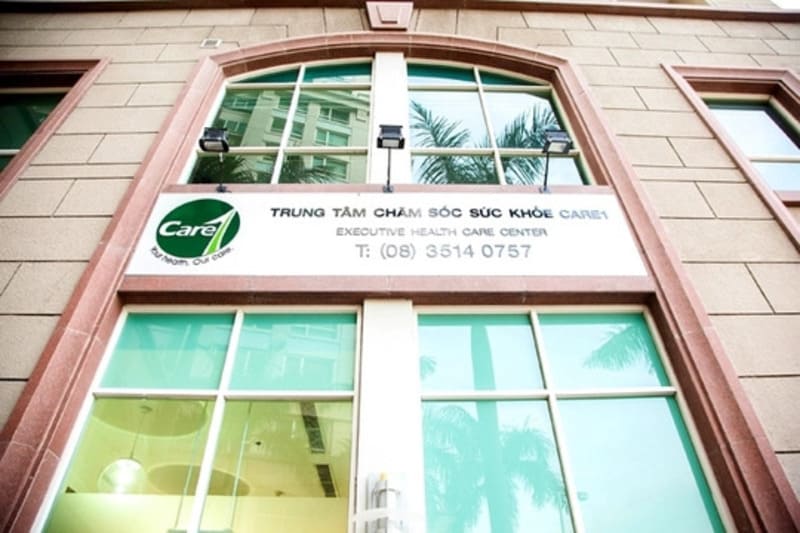
Many families also purchase private health insurance for their children to cover routine check-ups, vaccinations, dental care, and unexpected emergencies. Plans vary by provider, so be sure to choose one that includes both pediatric and dental coverage — especially if you plan to stay long term.
In a new country, nothing brings greater peace of mind than knowing your child’s health is in good hands.
Read more: Healthcare in Vietnam for Expats: Insurance & Hospital Tips
Building a Supportive Expat Community
Parenting abroad can sometimes feel isolating — especially when you’re far from familiar faces and family support. But in HCMC, you’re never truly alone. The city has a strong, growing expat community for families, full of opportunities to connect, share, and grow alongside others on a similar journey.
Where to Find Support:
- Facebook groups like “Saigon International Families” or “Expat Families in Thao Dien - An Phu”
- International schools that organize events, workshops, and parent meetups
- Family-friendly cafés and indoor play areas like Snap Café, Family Garden, and Vincom playgrounds
- Daycares and preschools for toddlers (e.g., SmartKids, Saigon Kids)
Becoming part of a community helps children build friendships in a new environment — and gives parents a valuable support network for everything from schooling advice to everyday tips. In a city as dynamic as HCMC, connection is not only possible — it’s essential.
Read more: Finding Your Tribe: Join Expat Communities in Ho Chi Minh City
Balancing Work and Family Life
For many expat parents in Vietnam — whether digital nomads, entrepreneurs, or professionals — finding a healthy work-life balance is just as important as finding a good school. Luckily, living in HCMC with children comes with resources that make this balance more attainable than expected.
Access to affordable domestic help is one of the biggest advantages. Many families hire nannies or babysitters — often experienced, warm, and able to communicate in basic English. This home support gives parents the freedom to stay productive while knowing their children are safe and cared for.

Beyond the home, HCMC offers an increasing number of family-friendly coworking spaces and cafés, where you can get things done while your child plays nearby or joins a creative workshop. Combined with flexible school hours and after-school programs, it becomes easier to create a daily rhythm that nurtures both your career and your family life.
Raising Culturally Aware, Bilingual Children
One of the most rewarding aspects of raising kids in HCMC is watching them grow into bilingual, culturally aware individuals who feel at home in more than one world. In this dynamic city, children naturally absorb Vietnamese through school, play, and everyday life — helping them connect more deeply with local culture and community.
At the same time, many families maintain their native language at home, whether it’s English, French, Korean, or another. Some parents choose to support this with language centers or private tutors, ensuring their children become confident in both languages — and both cultures.
Through daily interactions, local festivals, shared meals, and diverse friendships, children learn the values of inclusion, empathy, and adaptability. These are not just life skills — they’re global advantages that will serve them for years to come.
Things to Do with Kids in HCMC
HCMC offers an exciting mix of fun and educational activities for kids, making weekends feel like mini-adventures. Whether your family prefers nature, creativity, or hands-on learning, there’s always something new to explore.
Here are a few popular spots to check out:
- Saigon Zoo & Botanical Gardens – a blend of wildlife and greenery
- Snow Town Saigon – an indoor snow zone where kids can sled and play
- Suoi Tien Theme Park – full of rides, water games, and cultural exhibits
- KizCiti – a miniature city where children can try real-world jobs
- Art workshops & cooking classes – at places like The Snap Café or Vincom Kids Art
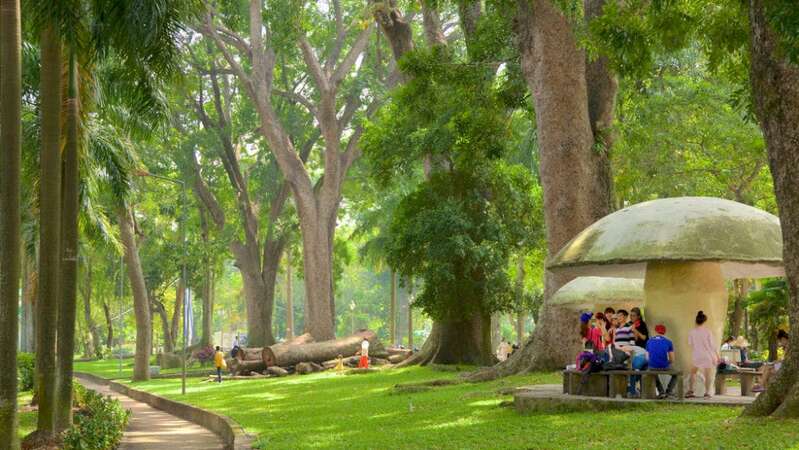
Looking for a relaxing afternoon? Many child-friendly cafés and brunch spots offer indoor play areas and healthy menus, giving parents time to unwind while kids have fun nearby.
For green space and fresh air:
- Crescent Lake Park (District 7)
- Tao Dan Park (District 1)
- Family Garden (Thao Dien) – a favorite among expat families
These local gems make it easy to combine fun, bonding, and discovery — turning ordinary weekends into meaningful family moments.
Budgeting for Family Life
Raising kids abroad can feel financially overwhelming — but in HCMC, it doesn’t have to be. The city offers a wide range of options to suit different budgets, especially if you’re mindful in choosing schools, housing, and daily services.
Here’s a quick overview of typical monthly expenses for expat families in Ho Chi Minh City:
| Expense Category | Monthly Cost Estimate (USD) |
| International school | $800 – $2,500 |
| Daycare/preschool | $300 – $800 |
| Health insurance (child) | $50 – $120 |
| Nanny/domestic helper | $300 – $500 |
| Food & activities | $200 – $400 |
Note: Actual costs may vary depending on your family size, lifestyle, and neighborhood preferences.
From world-class education to affordable childcare and healthcare, HCMC offers real value for families willing to plan. By staying flexible and open to local options, you can enjoy a comfortable, fulfilling family life — without breaking the bank.
Read more: Long-Term Budgeting in Vietnam: Monthly Costs & Smart Saving Tips
Tips for a Smooth Transition
Settling into life as an expat parent in Vietnam comes with questions — and a learning curve. Here are a few practical tips for parenting in Vietnam that can make the journey smoother:
- Visit schools and neighborhoods in person before making long-term commitments. First impressions matter.
- Work with a relocation agency or trusted local guide to handle paperwork and early logistics.
- Connect with other expat parents — their advice, insights, and lived experience are invaluable.
- Learn a few basic Vietnamese phrases together with your child to encourage integration and confidence.
- Stay open-minded and flexible — Vietnamese culture may surprise you in the most delightful ways.
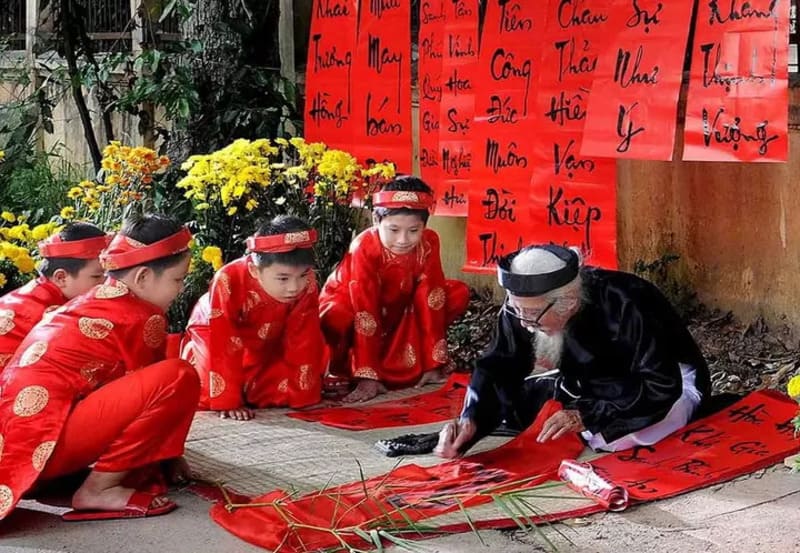
Raising kids in a new country is not about having all the answers — it’s about growing together through the unknown. With an open heart and the willingness to adapt, this chapter of family life in HCMC might just become your most memorable yet.
Read more: Long-Term Living in Vietnam: A Settling Guide for Expats & Families
Final Thoughts: Nurturing Childhood, Together with Expat Families in HCMC
Raising kids in HCMC can feel overwhelming at first — from navigating a new language and school system to adjusting to unfamiliar routines. But with the right support network, access to quality healthcare and education, and an open mindset, Ho Chi Minh City becomes more than just a place to live — it becomes home.
This vibrant city offers daily opportunities for discovery, diversity, and connection — all of which shape a meaningful family life for long-term expat families. Even finding the right home through a trusted local partner like JHouse can ease the transition.
Whether you're just beginning your parenting journey abroad or already settled in, let this guide serve as a gentle reminder: you’re not alone, and you’re more than capable. Your children are growing up in one of Asia’s most dynamic cities — and in doing so, you’re giving them something truly special: a global, resilient, and joy-filled childhood.
JHouse Content Team
The in-depth content development team on housing services for foreigners & Vietnamese in Vietnam. The content is simple, easy to understand, and logically arranged to bring readers useful topics and information from real experiences.
Finding Your Tribe: Join Expat Communities in Ho Chi Minh City
How to Meet People in Ho Chi Minh City: Join Expat Communities
Joining expat communities in Ho Chi Minh City is one of the best ways to feel at home faster—especially if you're new to Vietnam. Whether you're here for work, travel, retirement, or a long-term adventure, the city’s vibrant international scene offers countless ways to connect with like-minded people. But let’s face it—navigating a new city without friends, social circles, or even familiar routines can feel overwhelming, no matter how exciting the destination.
Fortunately, Saigon (as locals still call it) is home to a wide range of expat communities that welcome newcomers with open arms. From casual social meetups to professional networking groups and hobby-based clubs, there’s a space for everyone.

This guide will walk you through how to meet people in Ho Chi Minh City, join expat communities, and create the social life you truly want—whether you're an outgoing extrovert or a quiet newcomer looking for meaningful connections.
The Role of Community in Every Expat Journey
Moving abroad often comes with cultural differences, language barriers, and emotional ups and downs. Having a community that truly “gets it” can make the difference between feeling lost and feeling like you belong.
Expats in Ho Chi Minh City come from all walks of life — teachers, entrepreneurs, digital nomads, retirees—and there’s a quiet bond that forms between those walking a similar path.
The right expat group can be your safety net and your shortcut to settling in, offering:
- Local tips and survival advice
- Job leads or freelance gigs
- Emotional support during tough days
- Connections that turn into lasting friendships
Whether you're living in Thao Dien, Binh Thanh, or District 1, chances are there's an expat circle nearby—ready to welcome you in.
Read more: Long-Term Living in Vietnam: A Settling Guide for Expats & Families
Where to Meet People in Ho Chi Minh City
1. Facebook Groups & Online Forums
When you're new in town, Facebook groups can be your quickest gateway into expat life in Saigon. They remain one of the most active and accessible ways to meet fellow expats in Vietnam.
Some of the best expat Facebook groups in Ho Chi Minh City include:
- Expats in Ho Chi Minh City (150k+ members – general Q&A and events)
- Fexpats - Female Expats and Locals in Ho Chi Minh city (supportive space for women)
- Digital Nomads Vietnam (for remote workers and travelers)
- Foreigners in Saigon (HCM city) (General Q&A and events)
These groups often post about upcoming meetups, housing tips, job leads, and casual discussions. Most are welcoming and active—don’t hesitate to say hi or ask questions. You’ll likely receive a friendly response within minutes.
Visit the JHouse website if you're looking for a trusted partner to help you find a new home in a city that still feels unfamiliar.
2. Coworking Spaces
Working remotely doesn’t have to mean working alone. In Ho Chi Minh City, coworking spaces are more than just places with fast Wi-Fi and free coffee—they’re vibrant hubs where ideas spark and connections happen naturally.

Spaces like The Hive (Thao Dien), Toong (District 3), and Dreamplex (multiple locations) regularly host networking nights, workshops, and Friday happy hours. Whether you're looking to meet fellow digital nomads, creative entrepreneurs, or simply make a new friend over coffee, coworking spaces are a relaxed yet powerful way to grow your community in the city.
Read more: Thao Dien – The Ideal Workplace with Many Business Centers
3. Language Exchange & Meetup Events
Not into loud parties or networking nights? Language exchanges offer a relaxed, low-pressure way to meet both locals and international friends—while learning something along the way.
Events like Saigon Language Lovers, Vietnamese-English Language Exchange, or casual meetups through apps like Tinder Social, Bumble BFF, and Meetup.com are perfect for building connections in a natural, friendly setting.
You’ll often find young professionals, students, and curious travelers chatting over drinks, playing language games, or bonding over shared culture.
Tip: These spaces attract locals eager to practice English and expats looking for their tribe. It’s a win-win—and a great first step if you're wondering how to meet people in Ho Chi Minh City.
Types of Expat Communities in Ho Chi Minh City
From brunch lovers to startup dreamers, there’s a tribe for everyone in Saigon. Expat communities here reflect the city's diversity—social, professional, cultural, and spiritual. Here's a look at the different types you can explore:
1. Social & Lifestyle Groups
Casual, friendly, and easy to join—these include:
- Weekly brunch clubs
- Pub quiz nights
- City walking tours
- Outdoor fitness & yoga sessions
You’ll find many of these in expat-heavy areas like Thao Dien and Phu My Hung, perfect for those craving fun, lighthearted ways to meet new people.
2. Professional Networking Circles
Ideal for freelancers, job seekers, and entrepreneurs, these groups help you build your career and your network:
- Vietnam Business Network
- Creative Mornings Saigon
- Young Entrepreneurs Saigon
Many host talks, pitch nights, and casual networking events with a creative vibe.
3. International Clubs
Looking for structured communities with global ties? Try:
- American Chamber of Commerce (AmCham Vietnam)
- Cultural groups from France, Germany, Korea, etc.
- Rotary Clubs and local volunteer circles
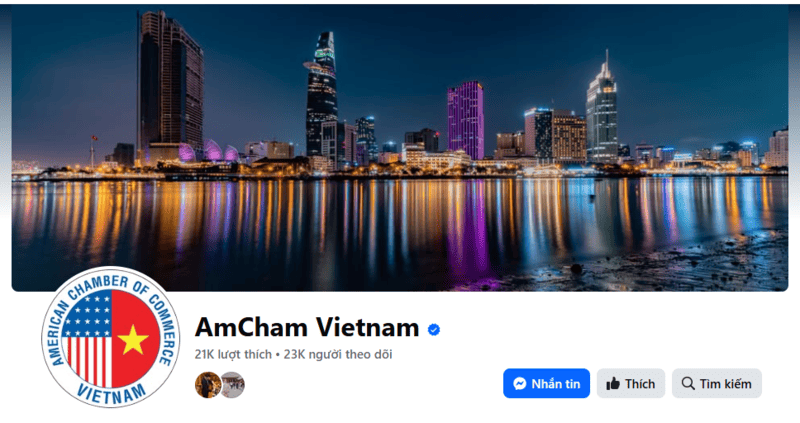
These organizations often organize gala dinners, fundraisers, and cultural exchanges—great if you enjoy formal events or giving back.
4. Wellness & Spiritual Communities
More and more expats are embracing mindful living while abroad. From meditation circles and vegan cooking classes to holistic healing retreats, there’s a strong wellness scene in places like District 2. Check platforms like Eventbrite or Facebook Events for what’s happening.
Finding Your Neighborhood “Tribe”
In a city as sprawling as Ho Chi Minh, your neighborhood doesn’t just shape your commute—it shapes your tribe. Where you live often determines who you meet, what events you attend, and how quickly you feel at home.
1. Thao Dien (District 2)
A favorite among Western expats—especially families, creatives, and digital nomads. Mornings here often start with cold brews at boutique cafés, and afternoons flow into yoga, coworking, or a stroll through leafy, pet-friendly lanes. You’ll find:
- Boutique cafes and coworking lounges
- International schools and family activities
- Yoga studios, dog parks, and zero-waste stores
Perfect if you're after a slower, more “Westernized” pace of life.
Read more: Why do expats choose to rent apartments in Thao Dien?
2. District 7 (Phu My Hung)
This sleek, suburban-style area is popular with Korean, Japanese, and Taiwanese expats. It's known for wide streets, organized layouts, and a calm, clean feel—ideal for young families or anyone craving order in the city’s chaos. Expect to find:
- Parks, malls, and quiet residential blocks
- Korean cafés and Asian supermarkets
- Community centers and international clinics
3. District 1 & Binh Thanh
If you love energy, nightlife, and spontaneity—this is your zone. Think rooftop bars, street food tours, and start-up pitches all in a day’s work. These districts are a magnet for solo expats, creatives, and social butterflies. You’ll often meet people just by stepping into a café or chatting at a live music night.
Overcoming the Initial Barriers
Let’s be honest: showing up in a new city and trying to make friends isn’t exactly easy. Even with countless events, forums, and social apps, that first step can still feel awkward. But with a little intention—and a low-pressure approach—you’ll be surprised how quickly your circle grows.

1. Start Small Commit to just one social thing a week: a language exchange, a yoga class, or even a Sunday flea market. When you see the same faces more than once, casual chats can naturally evolve into real friendships.
2. Introduce Yourself Online Don’t underestimate the power of a simple post. A quick “Hi, I just moved to Saigon—anyone up for coffee?” in a Facebook group often leads to genuine, real-life meetups within days.
3. Use Apps to Expand Your Circle Apps like Bumble BFF, Tandem, or Couchsurfing Hangouts are built for this exact purpose. In Ho Chi Minh City’s fast-growing expat scene, making friends through your phone isn’t just common—it’s smart and efficient.
4. Join Purpose-Driven Communities
Making friends is great—but making a difference? That’s even more powerful. Many expats in Vietnam find that giving back or collaborating on meaningful projects helps them feel more grounded—and more at home.
Explore these purpose-driven communities that welcome international members:
- Charity organizations: Participate in local clean-ups or fundraising events.
- Startup ecosystems: Contribute to workshops or tech talks.
- Creative groups: Share your art, photography, or writing in open mic nights.
When you show up with your time, talent, or simply your curiosity, you don’t just attend—you belong. And those bonds often run deeper than you expect.
Events to Look Out For in 2025
Want to stay in the loop and meet people naturally? These recurring events bring the expat community together year-round—whether you're into art, ideas, or just quirky quiz nights over craft beer.
- Saigon Outcast Flea Market & Art Events (District 2)
- Spiritual Sundays at The Hive Villa (follow Eventbrite/Facebook)
- Tech in Asia Meetup & Startup Grind Saigon (check Meetup.com)
- Trivia nights at Malt, Broma, and Belgo (follow Facebook pages)
- Binh Tay Market or Saigon Urban Flea Market as a cultural experience

Lonely Moments as an Expat in HCMC: And How to Move Past Them
Even in the most colorful cafés or buzzing rooftop bars, loneliness can still creep in—especially during those early weeks when everything feels unfamiliar. No matter how exciting Saigon is, many expats experience the same struggles. Some common challenges include:
- Language and culture gaps
- Homesickness or culture fatigue
- Difficulty finding “your kind of people”
- Feeling like an outsider in certain circles
But here’s the truth: you’re not alone—and it gets easier. The key is to keep showing up. That coffee chat, that yoga class, that trivia night—they’re not just events, they’re opportunities. Your tribe is out there. And every small “yes” brings you closer to finding them.
Read more: Long-Term Living in Vietnam: Top Challenges & How to Overcome
Final Thoughts: Finding Your Tribe in Ho Chi Minh City
From your first solo coffee in Thao Dien to a rooftop conversation that turns into real friendship—you’ll realize just how deeply connection shapes your expat journey. Whether you’re new to Asia or have lived abroad for years, Ho Chi Minh City offers more than just convenience—it offers community.
The relationships you build here can spark unexpected jobs, creative passion projects, or friendships that feel like home. So say yes to that meetup, post in that Facebook group, and walk into that coworking space. Be open. Be curious. You’re not the only one looking to connect.
At JHouse, we believe Vietnam isn’t just a place to stay—it’s a place to belong. And finding your tribe? That’s the first step to feeling truly at home.
Need a place to start? Contact us—not just for your next home, but for your first connection into Saigon’s vibrant expat scene.
JHouse Content Team
The in-depth content development team on housing services for foreigners & Vietnamese in Vietnam. The content is simple, easy to understand, and logically arranged to bring readers useful topics and information from real experiences.
Open a Bank Account in Vietnam: A Guide for Expats
How to Open a Bank Account in Vietnam as an Expat: A 2025 Guide
For expats, one of the first — and most practical — steps when settling into life in Vietnam is to open a bank account. Whether you're planning to stay for months or years, managing your finances locally will make everyday life smoother, more affordable, and more secure.
But as simple as it sounds, the process can feel confusing at first. Different banks have different rules, documentation varies by visa type, and not all staff speak English. The key is knowing what to prepare and where to go.
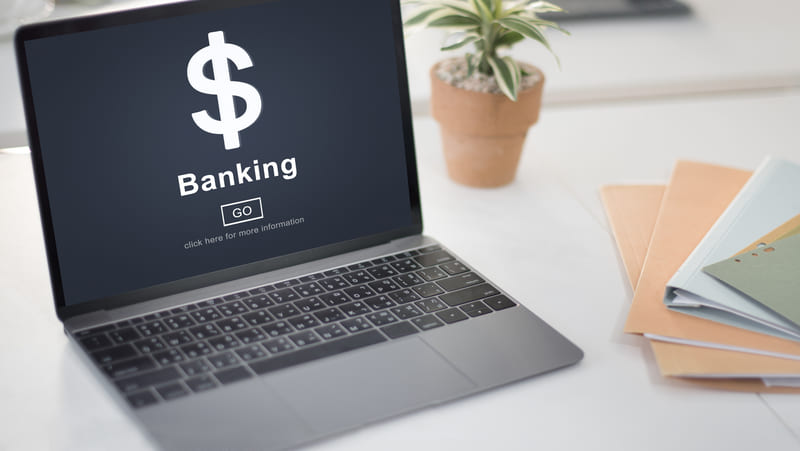
This guide is designed to help expats navigate Vietnam’s banking landscape — from choosing the right bank and understanding account types to avoiding hidden fees. With the right info, you’ll be ready to open your account and make the most of your time in Vietnam.
Benefits of Opening a Local Bank Account for Expats
Using your foreign bank card in Vietnam might work short-term, but the fees can pile up fast. A local account helps you:
- Get paid in VND or USD
- Pay utilities, rent, or service providers
- Access mobile and internet banking
- Save on ATM and currency conversion fees
- Build local financial history (useful for business or long stays)
With these advantages, a local bank account quickly becomes more than a convenience — it's a necessity.
Can a Foreigner Open a Bank Account in Vietnam?
Yes — but conditions apply. As of 2025, foreigners living in Vietnam long-term (with a valid visa or temporary residence card) can open personal or business bank accounts. Some banks allow account opening with a tourist visa, but options are limited and stricter.
Here are the standard documents you’ll typically need to open an account:
- Valid passport
- Valid visa or temporary residence card (TRC)
- Proof of address in Vietnam (rental contract, utility bill)
- Work permit or business license (optional but helpful)
- Vietnamese phone number
Note: Some banks may also request a tax code or proof of income, depending on the account type and bank policy.
Read more: Long-Term Visa, Work Permit & TRC in Vietnam: What You Need to Know
Local vs. International Banks in Vietnam: What’s the Difference?
Vietnam offers a wide range of banking options — from state-owned giants to foreign-invested institutions. Choosing the right bank depends on your priorities: Convenience, English-language support, digital services, fees, and how long you plan to stay.
While international banks offer familiarity, global access, and English-friendly service, local banks tend to provide better flexibility, lower fees, and a wider network of branches for everyday needs.
1. International Banks (Ideal for Expats who need global access):
- HSBC Vietnam
- Standard Chartered
- UOB Vietnam
- Citibank Vietnam (limited retail services post-2023)
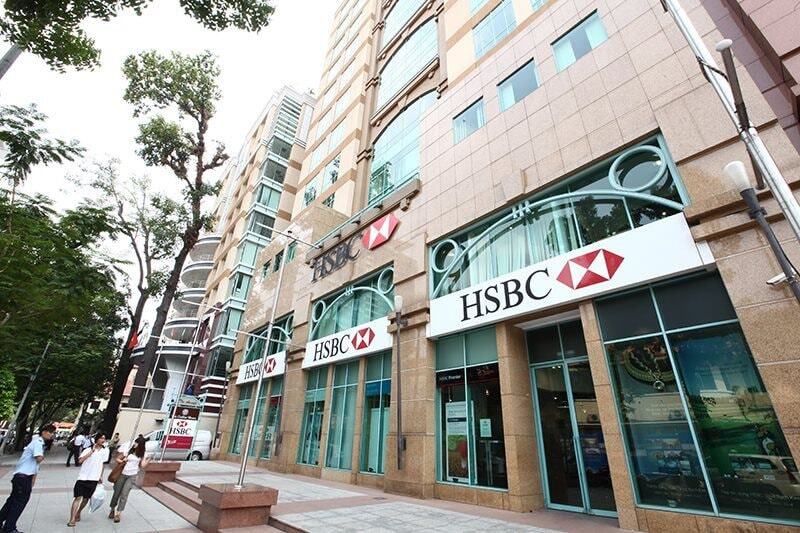
These banks typically offer solid English-language support, reliable mobile banking apps, and easier international transfers. However, they usually require a higher minimum balance and stricter documentation to open or maintain your account.
2. Local Banks (Great for daily use and domestic convenience):
- Vietcombank
- TPBank
- ACB (Asia Commercial Bank)
- Techcombank
- MB Bank
- Sacombank
Local banks often have more branches across cities and towns, lower monthly fees, and simpler paperwork. In many cases, they may allow expats to open an account even with a tourist visa, though this depends on the specific branch. These banks are ideal for local payments, salary transfers, and savings in VND.
Their mobile banking apps are also becoming increasingly expat-friendly — with banks like TPBank and MB Bank offering English interfaces and eKYC onboarding (digital ID verification).
Tip: If you're staying in Vietnam long-term, consider opening both a local and a foreign-invested bank account. This combination gives you the best of both worlds: international access and local flexibility.
Step-by-Step: How to Open a Bank Account in Vietnam as an Expat
Ready to open your account? Here’s a simple step-by-step guide to walk you through the process — from choosing the right bank to receiving your card. With a bit of preparation, the whole process can be completed in just a few days.
1. Choose Your Bank
Start by comparing different banks based on your priorities: English-language support, service fees, mobile banking experience, and nearby branches. Visit official websites or ask other expats in your area for personal recommendations.
2. Prepare Your Documents
Once you’ve chosen a bank, gather the required documents. Most banks will ask for:
- Passport (with at least 6 months’ validity)
- Valid visa or Temporary Residence Card (TRC)
- Proof of address in Vietnam (rental contract, utility bill, or hotel booking)
- Vietnamese phone number
- Optional but helpful: Work permit, job contract, or business license
Note: Document requirements may vary slightly depending on the bank and city, so it’s best to confirm in advance.
3. Visit the Bank (In Person)
While some banks like TPBank or MB Bank offer online pre-registration or eKYC via mobile apps, most still require you to visit a branch to complete identity verification. Choose a location with English-speaking staff if possible.
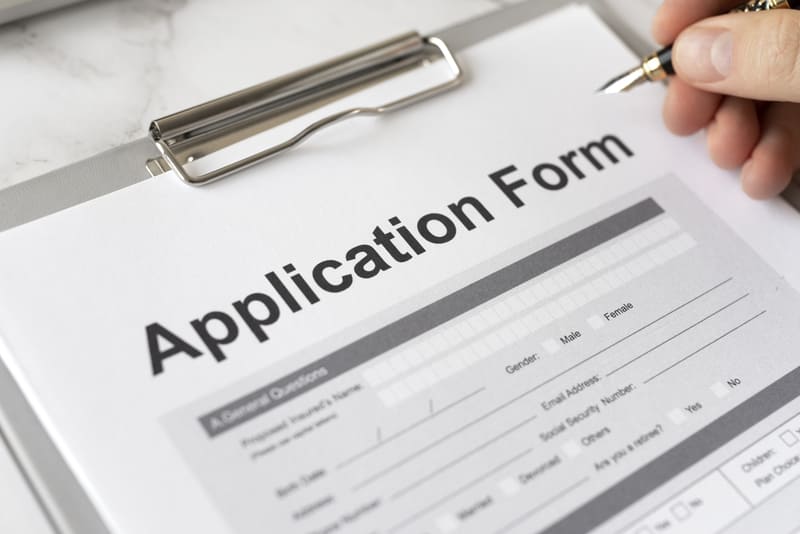
4. Choose Account Type
You’ll typically be able to choose from:
- VND Current Account
- USD or foreign currency account
- Savings account
- Digital-only account (via mobile app)
Note: Some banks let you link your VND and USD accounts for easier currency management and transfers.
5. Deposit Initial Funds
Minimum deposit amounts vary depending on the bank:
- Local banks: from VND 500,000 (~$20)
- International banks: from VND 2–5 million (~$80–200)
Ask the bank staff about the minimum balance requirement to avoid monthly fees.
6. Receive ATM/Debit Card
Most banks will issue your card within 2 to 5 working days. You can either pick it up at the branch or request delivery to your registered address. In many cases, your card will also be activated for online purchases and mobile banking right away.
Best Banks in Vietnam for Expats (2025 Update)
Not sure which bank to choose? Here are some of the most expat-friendly banks in Vietnam — trusted for their service quality, English-language support, and ease of account setup. Whether you prioritize digital convenience or international transfers, there’s an option here that fits.
| Bank Name | Why Expats Like It |
| HSBC Vietnam | Great for global transfers, English-speaking support |
| TPBank | Fast service, English app, low fees |
| Techcombank | Strong digital banking, competitive interest rates, modern app interface, widespread branch network |
| UOB Vietnam | Reliable for foreign currency accounts |
| MB Bank | Easy sign-up, supports eKYC (digital ID check) |
| ACB (Asia Commercial Bank) | Flexible documentation, many branches |
Opening a Bank Account in Vietnam on a Tourist Visa: Is It Possible?
Yes — but only in certain cases. Whether or not you can open a bank account on a tourist visa depends largely on the bank’s policy and the flexibility of the local branch.
Some local banks — particularly TPBank, MB Bank, and ACB — may allow it if you meet a few key conditions:
- Hold a valid passport
- Provide proof of long-term accommodation (hotel or Airbnb booking)
- Have confirmation from a local contact or employer
Still, even if you're approved, expect some limitations:
- Your account may have limited features (no debit card or online banking)
- You may not be eligible for online banking or USD accounts
- Some banks may close your account once your visa expires
For full account functionality — including mobile banking, multi-currency access, and account stability — it’s best to apply with a long-term visa, temporary residence card (TRC), or work permit.
What About Foreign Currency Accounts (USD, EUR)?
Yes, many banks in Vietnam allow foreigners to open foreign currency accounts, especially in USD — and in some cases, EUR or SGD. These accounts are particularly useful if you:
- Receive payments from abroad
- Want to hold offshore income or remittances
- Need occasional access to cash in foreign currency
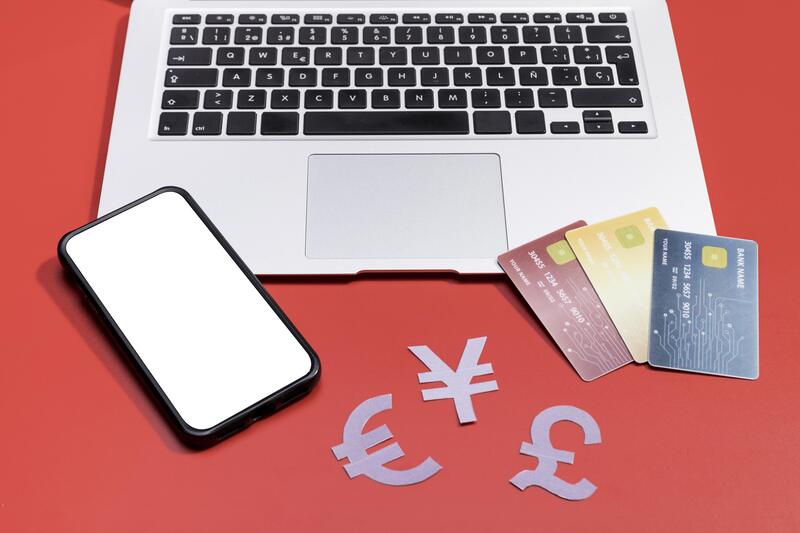
That said, foreign currency accounts come with a few limitations you should be aware of:
- You can’t use them for domestic payments in Vietnam
- Withdrawals in foreign currency may require special approval
- Interest rates are typically lower than for local VND accounts — and may even be zero in some cases
Foreign currency accounts are best used as holding accounts — not for day-to-day banking or purchases.
Digital Banking & Card Access in Vietnam: What Expats Can Expect
Vietnamese banks have made significant progress in digital banking, offering mobile apps that let you manage your finances on the go. With a local bank account, you can:
- Send and receive domestic transfers
- Pay utility bills or top up your phone balance
- Link your account to popular e-wallets like MoMo, ZaloPay, or even Apple Pay (supported by banks like TPBank and ACB).
- Check your balance, download statements, and track your transactions
Many apps offer partial or full English interfaces — though not all features may be fully translated.
Debit cards are also widely accepted in cities for shopping, dining, transportation, and online payments. You can withdraw cash from ATMs (free at your bank’s network), make in-store purchases, and receive your monthly salary directly into your account.
Tip:
- MB Bank and TPBank are popular among expats for their English-friendly apps, 24/7 support, and fast onboarding via eKYC.
- International banks like HSBC and Standard Chartered offer excellent mobile apps too, often with multi-currency support and global access — though they may have fewer local branches and longer onboarding times.
Tips for Expats Opening Bank Accounts in Vietnam
Here are a few key takeaways to ensure a smooth and successful banking experience in Vietnam:
- Bring all required documents: Passport, visa (or TRC), proof of address (rental contract or hotel booking), and a local phone number are usually mandatory.
- Use international banks if you prioritize global transfers, foreign currency accounts, or full English support.
- Use local banks if you want faster account setup, lower fees, and better integration with local services.
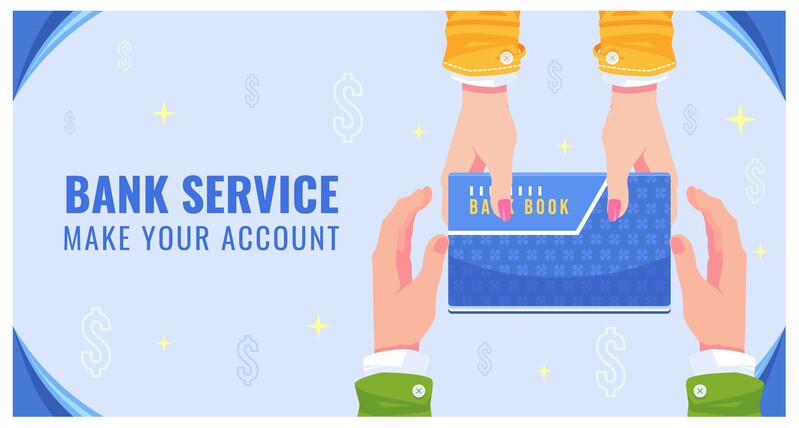
- Consider opening multiple accounts (e.g., one in VND and one in USD) for greater flexibility.
- Ask for English-speaking staff — most large branches in major cities like HCMC and Hanoi can accommodate.
- Verify mobile banking access and activation during account opening to avoid issues later.
- Double-check ATM compatibility and fees so you know where you can withdraw cash for free.
- Keep a copy of all paperwork and account details in a secure place or digitally backed up.
If you’re unsure where to start, join local expat groups on Facebook or Reddit — you’ll often find up-to-date advice on which banks are expat-friendly and which branches are easiest to work with.
What Expats Should Know About Banking in Vietnam
Although Vietnam’s banking system is modernizing rapidly, there are still a few important differences that may surprise newcomers. Here are some practical insights every expat should keep in mind:
- Most banks require a valid passport and a temporary residence card (or equivalent documents) for large transactions.
- International wire transfers may take 2–5 days
- Some banks require monthly minimum balances (especially foreign ones)
- Tax declarations may be needed if receiving large foreign transfers
- Branch hours are usually Monday–Friday, 8am–4pm (some open Saturdays)
Note: Don’t assume the same banking rules from your home country apply here — asking questions at your local branch (or bringing a Vietnamese friend) can save you time and frustration.
Final Thoughts: Settle in with Confidence
Opening a bank account in Vietnam as an expat is one of the smartest first steps you can take to feel truly settled. With the right documents, a little preparation, and a clear view of your options, managing your money locally becomes simple and stress-free.
Whether you’re working, investing, or just embracing everyday life in Vietnam, a local account helps you handle everything from rent payments to savings — while avoiding international fees and gaining financial peace of mind.
And for everything beyond banking — housing, lifestyle tips, or long-term living support — JHouse is here to help you feel right at home in Vietnam.
JHouse Content Team
The in-depth content development team on housing services for foreigners & Vietnamese in Vietnam. The content is simple, easy to understand, and logically arranged to bring readers useful topics and information from real experiences.
Healthcare in Vietnam for Expats: Insurance & Hospital Tips
Healthcare in Vietnam for Expats: What You Need to Know
Healthcare in Vietnam for expats can be both a relief and a challenge. While the country has made great strides in upgrading its medical services, navigating hospitals, choosing the right health insurance, and finding English-speaking doctors can still be overwhelming — especially for newcomers. And let’s be honest: when you’re settling into a new country, the last thing you want is uncertainty around your health.

Whether you're here for work, retirement, or simply to embark on a new adventure, staying healthy is crucial to enjoying your expat journey. Understanding how Vietnam’s healthcare system works — and how it differs from your home country — can save you time, stress, and even money.
This guide walks you through everything: from choosing a hospital, understanding insurance options, to dealing with emergencies — so you can focus on living well, not worrying about what might go wrong.
Healthcare in Vietnam For Expats: A Growing System With Global Reach
Over the past decade, Vietnam’s healthcare system has evolved rapidly. Major cities like Ho Chi Minh City and Hanoi are now home to state-of-the-art hospitals and international clinics serving both locals and expats. From routine checkups to emergency care, Vietnam offers a wide range of medical services for expats — but the experience can vary widely depending on where and how you seek care.
The country operates on a dual system: public hospitals are government-run and very affordable, while private hospitals often deliver faster service, shorter wait times, and more modern facilities — though at a higher price.
Most expats opt for private care, especially in urban areas where English-speaking doctors are more readily available. Many of these doctors are trained abroad and familiar with international healthcare expectations, adding peace of mind for those concerned about quality and communication.
Explore more: Long-Term Living in Vietnam: A Settling Guide for Expats & FamiliesPrivate vs. Public Hospitals: What Expats Should Know
Public hospitals in Vietnam offer basic care at low cost, but they can be crowded, and language barriers are common. Expect longer wait times, shared rooms, and minimal patient privacy. That said, public facilities have improved and are suitable for certain needs — especially if you’re on a budget and have Vietnamese-speaking support.
Private hospitals, on the other hand, are the go-to choice for most expats. Institutions like FV Hospital, City International Hospital, and Vinmec are well-regarded for their service quality, clean environments, and transparent procedures. Many also provide international billing, making them easier to navigate if you have overseas insurance.
Top Private Hospitals for Expats in Ho Chi Minh City:
- FV Hospital (District 7)
- Vinmec Central Park International Hospital (Binh Thanh)
- City International Hospital (Binh Tan)
- Family Medical Practice (District 1, 2, 7)
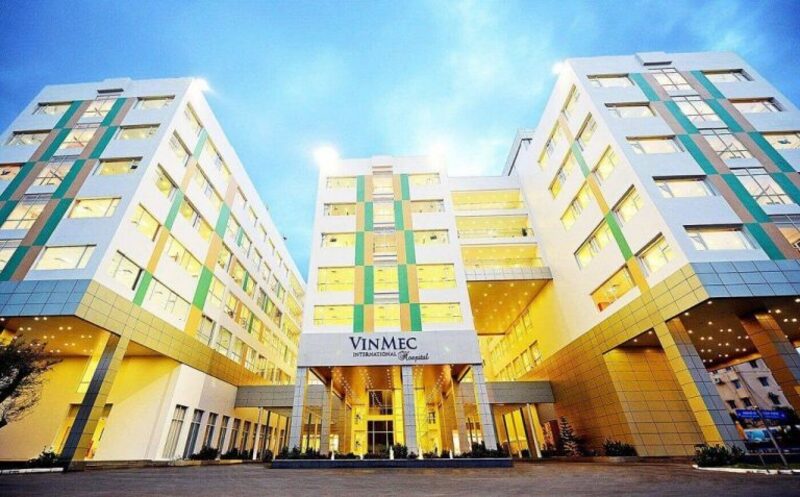
These hospitals often feel more like Western medical centers — with appointment-based services, shorter wait times, and multilingual staff. However, the cost of medical treatment for foreigners in Vietnam at private hospitals can be high without insurance — which brings us to the next essential topic.
Health Insurance in Vietnam: Why It Matters
Don’t wait until an emergency hits to think about insurance. Health insurance in Vietnam is not only essential for peace of mind, but it also helps manage the unpredictable — from hospital stays to specialist visits.
There are three common insurance options for expats:
1. International Health Insurance
Best for long-term expats and those who want global coverage. Plans from providers like Cigna, Allianz, or Bupa often cover treatment at top hospitals for expats in Vietnam and allow cashless claims at partnered clinics.
2. Local Private Health Insurance
Affordable and widely accepted in Vietnam. Companies like Bao Viet and Pacific Cross offer flexible plans tailored for expats — great if you don’t need global coverage but want good protection locally.
3. Employer-Provided Insurance
If you're working in Vietnam legally, your employer may offer insurance. Review the policy carefully: it may be limited to specific providers or exclude international clinics.
How to Get Health Insurance as an Expat in Vietnam
Getting insured is easier than you think. Many insurance providers in Vietnam now have English-speaking staff and online portals.
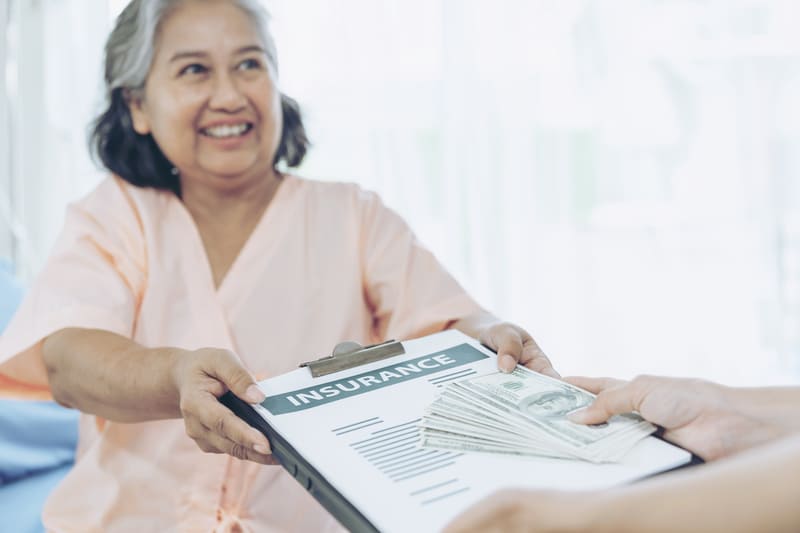
Here’s a basic step-by-step:
- Assess Your Needs: Do you need international coverage? Inpatient only or also outpatient?
- Compare Plans: Check exclusions, hospitals covered, and annual limits.
- Apply Online or via Broker: A broker can help compare quotes and complete paperwork.
- Understand Your Policy: Know how to file claims, which hospitals are cashless, and what pre-approval means.
Note: Always keep a physical or digital copy of your policy and ID card when visiting any hospital or clinic.
Cost of Medical Treatment for Expats in Vietnam
Vietnam offers relatively affordable healthcare compared to Western countries, but costs still vary:
|
Service |
Estimated Cost (USD) |
| General Consultation | $20 – $60 |
| Specialist Consultation | $40 – $100 |
| Health Check-up Package | $100 – $300 |
| Emergency Room Visit | $100 – $500+ |
| Overnight Hospital Stay | $150 – $600 per night |
| Surgery (minor to major) | $500 – $10,000+ |
Note:
- The consultation fees for general and specialist visits only cover the doctor’s time; additional costs for tests, medication, or follow-up treatments are not included.
- These prices are general estimates based on private hospital rates in major cities like Ho Chi Minh City and Hanoi. Actual costs may vary depending on the facility, level of care, and time of treatment.
Having insurance can significantly reduce or eliminate these costs, especially for inpatient care. If you plan on staying long-term, investing in comprehensive health insurance is highly recommended.
Tips for Navigating the Healthcare System
Whether it’s your first time seeing a doctor in Vietnam or you’re managing long-term health needs, these tips will help you move confidently through the system:
- Choose the Right Facility: Use international clinics for checkups and consultations. Save public hospitals for urgent cases with Vietnamese-speaking help.
- Book Appointments in Advance: Especially in private hospitals, scheduling ahead ensures better service and shorter waits.

- Bring Your Documents: Passport, insurance card, visa copy, and vaccination records — keep them ready for registration and claims.
- Ask for an English-Speaking Doctor: Many top facilities allow you to request an English-speaking physician — don’t hesitate to ask.
- Understand the Payment Process: Some hospitals offer direct billing with insurers; others may require upfront payment and later reimbursement.
Finding English-Speaking Doctors & Pharmacies
In major cities, finding English-speaking doctors in Vietnam is no longer a struggle. Clinics like Raffles Medical, Family Medical Practice, and CarePlus are staffed with multilingual professionals.
Pharmacies are also easy to find and well-stocked, but prescriptions may differ from your home country. When in doubt, go to larger pharmacies near hospitals or clinics — and bring a copy of your original prescription if you have one.
Healthcare Beyond Hospitals: Wellness & Prevention
Vietnam’s healthcare isn’t limited to hospitals. From annual health check-ups to vaccinations, you’ll find a growing focus on preventive care — especially in cities with a large expat population.
Many private clinics offer packages that include:
- Blood work & screenings
- Eye, dental, and ENT checks
- Gynecological or urological exams
- Mental health consultations
If you're staying long-term, consider booking a full-body check-up once a year. It's also wise to stay up to date on vaccinations in Vietnam, especially for diseases like dengue, hepatitis, or Japanese encephalitis.
Telemedicine & Remote Care: A Modern Alternative
You don’t always need to visit a hospital in person — especially for non-urgent concerns. If you're traveling or living outside major cities, online consultations offer a convenient and time-saving alternative.
Since COVID-19, telemedicine in Vietnam has grown rapidly. Apps and platforms now allow expats to consult with doctors online — ideal for follow-ups, minor health issues, or quick medical advice from the comfort of your home.

Popular platforms include:
- Jio Health
- eDoctor
- Doctor Anywhere
Just ensure your provider accepts insurance or offers English-language support before booking an appointment. However, for serious conditions or emergencies, in-person care at a hospital is still highly recommended.
What Are the Common Healthcare Challenges for Expats?
Even seasoned expats can feel lost when facing medical challenges in a new country. Despite all the improvements, healthcare in Vietnam can still feel overwhelming — especially if you’re unprepared. Here are a few common pain points to watch for:
- Language barrier: Not all hospitals have English-speaking staff — even in major cities. This can complicate diagnosis and consent.
- Payment confusion: Some clinics don’t accept international insurance without prior approval, leading to out-of-pocket surprises.
- Emergency care: Ambulance services vary in quality. Public options may lack equipment, while private ambulances are more reliable — but come at a cost.
Solution: Choose private facilities with international experience whenever possible. Register in advance, keep emergency contacts ready, and know how your insurance works in Vietnam. A little preparation goes a long way in ensuring peace of mind when you need it most.
Read more: Long-Term Living in Vietnam: Top Challenges & How to Overcome
Final Thoughts: Stay Healthy, Stay Confident
Healthcare in Vietnam for expats doesn’t have to be intimidating. From selecting the right hospital to understanding your insurance plan, a bit of preparation can make a big difference. Knowing where to go, who to call, and what to expect gives you control — whether it’s for a routine checkup or an emergency.
Investing in quality health insurance, choosing trusted private facilities, and staying informed about local medical services are key to feeling secure while living abroad. Your health is the foundation for a fulfilling expat life — don’t leave it to chance.
Whether you’re in Vietnam short-term or planning to stay for years, taking care of your health is essential to living well. For everything else — from housing to lifestyle tips — JHouse is here to help you feel at home.
JHouse Content Team
The in-depth content development team on housing services for foreigners & Vietnamese in Vietnam. The content is simple, easy to understand, and logically arranged to bring readers useful topics and information from real experiences.
Long-Term Visa, Work Permit & TRC in Vietnam: What You Need to Know
TRC, Work Permit & Long-Term Visa: What You Need to Know (2025 Guide)
Getting a long-term visa in Vietnam is the first major step toward building a stable life here. Whether you’re planning to work, invest, retire, or connect with family, staying in Vietnam long-term means navigating a maze of legal requirements — from visa types and work permits to the often-confusing TRC (Temporary Residence Card). And let’s be honest: it can feel overwhelming.
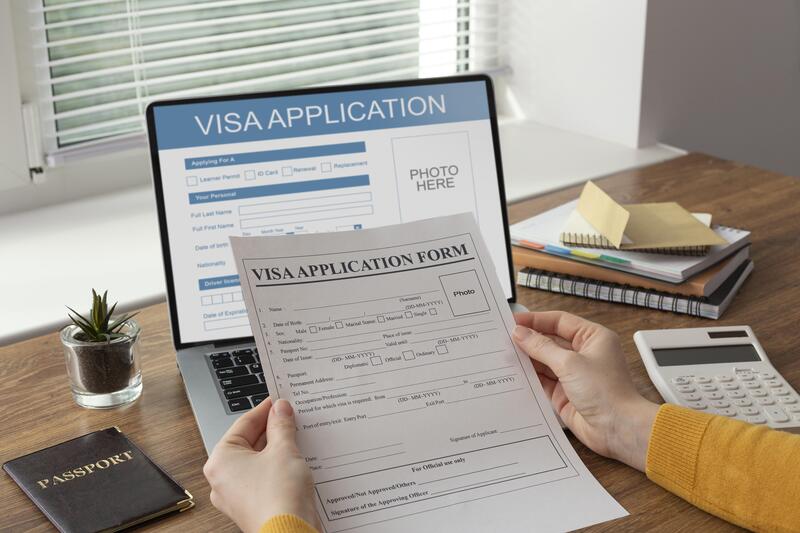
What kind of visa do you need? Do you qualify for a work permit or TRC? Can you stay here legally without a job? If questions like these have crossed your mind, you're not alone.
This guide is here to simplify the process — with clear, up-to-date information designed for expats. So you can stop stressing over paperwork and start focusing on what matters: building your new life in Vietnam with clarity and confidence.
Why You Should Understand Vietnam’s Visa, Work Permit & TRC Rules
Relocating to Vietnam opens the door to a fresh chapter — but first, there’s red tape to deal with. Whether you're an expat employee, an entrepreneur, a spouse of a Vietnamese citizen, or someone simply looking to enjoy life in Vietnam long-term, understanding the visa process is essential.
Knowing the difference between a work visa, work permit, and Temporary Residence Card (TRC) isn’t just about following the rules — it’s about unlocking a smoother, safer, and more secure experience as you build your life here.
Read more: Long-Term Living in Vietnam: A Settling Guide for Expats & Families
1. Most Common Long-Term Visa Types in Vietnam
Navigating Vietnam’s visa system starts with knowing which visa type suits your situation. Below are the most common long-term visa options for expats:
1.1 Work Visa (LD):
For foreigners legally employed by a Vietnamese company. Valid for 1–2 years, depending on contract and work permit. Note: Eligible for Temporary Residence Card (TRC).
1.2 Investor Visa (DT)
For individuals investing in or starting a business in Vietnam. Duration varies based on capital (up to 5 years). Note: Eligible for multi-year TRC.
1.3 Family/Spouse Visa (TT):
For those married to Vietnamese citizens or with close family ties. Valid for 1–3 years (renewable). Note: Does not automatically grant work rights.
1.4 Long-Term Tourist Option (Unofficial Route)
There’s no official “retirement visa,” but many use reputable visa agents to arrange multiple-entry long-term tourist visas, typically 3–6 months at a time with renewals. Important note: This is not a government-endorsed long-term stay path. Use only trusted agencies, and always verify your legal status.2. What is a Work Permit in Vietnam?
If you're planning to work legally in Vietnam, especially under a local company, you'll most likely need a work permit — unless you qualify for an exemption. This document is issued by the Ministry of Labor, Invalids and Social Affairs (MoLISA) and is required for most foreign professionals working under a labor contract.
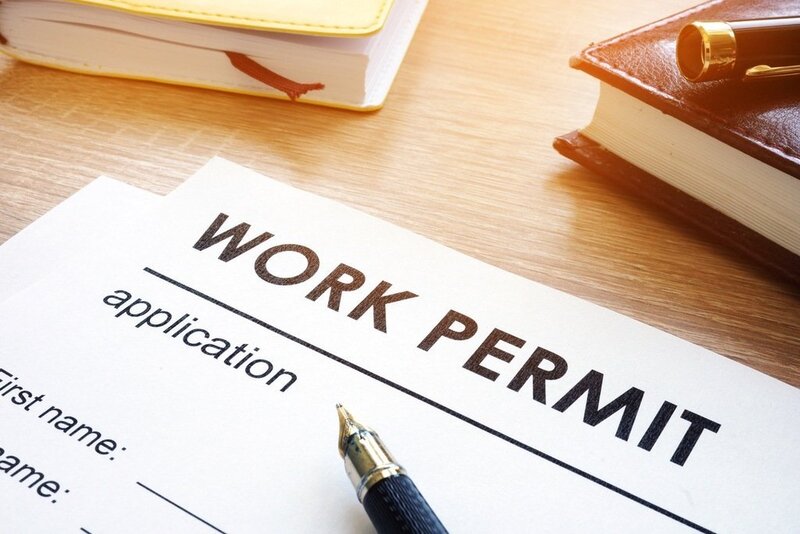
Who Needs a Work Permit? You’ll need one if you:
- Are employed by a Vietnamese company or organization
- Work under a signed labor contract
- Hold professional roles such as teacher, engineer, consultant, or manager
Validity & Renewal
- Initial validity: Up to 2 years
- Renewal: Can be renewed once for a similar duration
- After expiration, a new application must be submitted (not just an extension).
Who’s Exempt from Work Permits?
Some foreigners are exempt from work permits, but still need to notify local authorities. You may qualify if:
- You work less than 30 days per visit, and under 90 days total per year
- You are a company owner or investor with sufficient capital (as specified by law)
- You are married to a Vietnamese citizen, in certain approved cases
- You are transferred internally within a multinational company
Note: Delays in work permit processing often come from missing or inconsistent documents. Always consult your employer or a trusted visa agency early in the process.
3. What is a TRC (Temporary Residence Card) & Who Needs It?
What is a TRC?
A Temporary Residence Card (TRC) is a long-term stay permit that replaces your visa and allows you to live in Vietnam legally for 1 to 5 years without the need for regular visa renewals. It also allows multiple entries and exits without reapplying for a new visa each time — making it a highly convenient solution for expats planning to stay long-term.
In short: The TRC is your key to legal, stable, and simplified life in Vietnam.
Who Can Apply? You may be eligible to apply for a TRC if you fall into one of the following categories:
- You have a valid work permit and are employed in Vietnam
- You are an investor or business owner registered in Vietnam
- You are married to a Vietnamese citizen
- You are a parent or child of a Vietnamese citizen
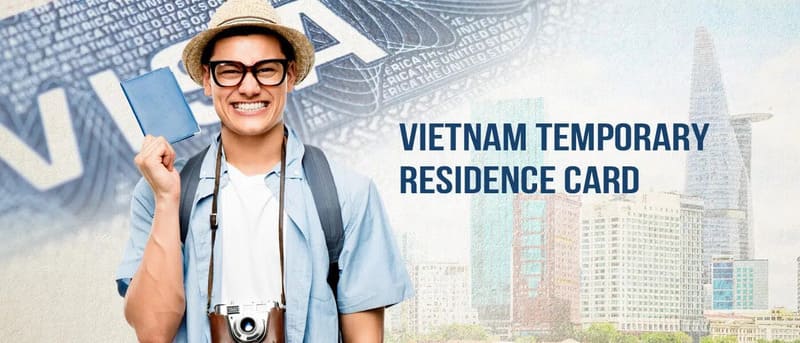
TRC Benefits:
- No more frequent visa renewals
- Faster banking, housing, and legal paperwork (most banks and landlords prefer TRC holders)
- Freedom to travel in and out of Vietnam multiple times
- Improved credibility when applying for visas to other countries (e.g. Schengen, U.S.)
- Peace of mind — stable legal status means fewer administrative worries
Important Notes
- Your TRC is linked to the basis on which it was granted (job, investment, marriage, etc.). If your job ends, your company closes, or your marriage dissolves, your TRC may become invalid.
- You are required to report changes in residence or legal status to the immigration office.
- Renewal or reapplication is required once the TRC expires. Start early — the process can take 5–10 business days.
See detailed requirements for each type of application, head to “Section 6: Documents & Application Process.”
4. How to Choose the Right Visa for Your Situation
Let’s simplify it. Based on your purpose, here’s what might work best for you:
| Purpose | Recommended Visa Type | TRC Eligible? |
| Working for a Vietnamese company | Work Visa (LD) | ✅ Yes |
| Opening or investing in a business | Investor Visa (DT) | ✅ Yes |
| Married to a Vietnamese citizen or have Vietnamese children | Family Visa (TT) | ✅ Yes |
| Long-term travel or semi-retirement without employment | Tourist Visa (DL) + extensions | ❌ No |
| Remote work/ freelancing (no local employer) | Tourist Visa (DL) or Business Visa (DN) | ❌ No |
| Consulting or training (short-term contracts) | Work Visa + Permit | ✅ Yes |
Tip: If you're unsure which visa fits your case, consult a licensed visa service or legal advisor — the right choice can save you time, money, and stress.
5. FAQ: Visa, Work Permit & TRC in Vietnam
Q: Can I live in Vietnam long-term without a work permit?
A: Yes, if you're here under a family visa, investment, or are eligible for a work permit exemption.
Q: Is a long-term visa enough to open a bank account?
A: Usually yes, especially if you hold a TRC or a valid visa longer than 3 months.

Q: What’s the difference between a visa and TRC?
A: A visa is usually valid for 1–3 months and allows you to enter and stay temporarily. A TRC acts as a long-term residency card — replacing your visa, valid for 1–5 years, and allows multiple entries without reapplying.
Q: What if I lose my TRC?
A: You must report it to the immigration police and reapply within 15 days. Always keep digital backups of your documents! If you don’t report it within 15 days, you may be fined or face immigration complications.
Q: How long does it take to get a TRC? A: Around 5–7 working days after submitting complete documents.
Q: Can I apply for a work permit by myself? A: No. Your Vietnamese employer must sponsor and apply on your behalf.
6. Documents & Application Process
Applying for a Long-Term Visa/ Work Permit or Temporary Residence Card (TRC) in Vietnam requires careful preparation. Below is a breakdown of the required documents, estimated processing time, and pro tips to help you get through the process smoothly.
6.1 Long-Term Visa Application
Before you can apply for a TRC or Work Permit, you must hold a valid visa that matches your purpose of stay. Depending on your situation — work, investment, family, or extended tourism — visa types and requirements vary.
Required Documents: (Varies by visa type: LD, DT, TT, DL…)
| Document | Details |
| Valid passport | At least 6 months' validity |
| Visa application form | NA1 (for embassy) or NA2 (for in-country extension) |
| Sponsorship/invitation letter | From an employer, investor, or family member |
| Legal proof of purpose | Labor contract, business license, marriage/birth certificate… |
| Passport-sized photos | 2 photos (4x6 cm, white background) |

6.2 Work Permit Application
| Required Document | Details |
| Passport & valid visa | Must be valid for at least 6 months |
| Employment contract | Signed with a legally registered Vietnamese company |
| University degree & CV | Degree related to the job + proof of at least 3 years of experience |
| Health certificate | Issued in Vietnam or from a recognized overseas hospital |
| Police clearance | Criminal record from the home country or Vietnam |
| Passport-sized photos | 2–4 photos (4x6 cm or 3x4 cm, white background) |
Note: All foreign documents must be legalized, translated into Vietnamese, and notarized.
6.3 TRC (Temporary Residence Card) Application
| Required Document | Details |
| Work permit / Investment certificate / Marriage certificate | Depending on your eligibility category (work, investment, family) |
| Passport & valid visa | The passport must still be valid |
| NA6 and NA8 forms | Official immigration forms (your sponsor/employer will help prepare) |
| Passport-sized photos | 2 photos (2x3 cm, white background) |
| Sponsorship documents (if applicable) | From an employer or a family member in Vietnam |
Note: If you're applying under family sponsorship, you may also need proof of relationship and residency.
6.3 Processing Time
| Application Type | Estimated Time |
| Long-Term Visa (via embassy) | 5–7 business days |
| Visa extension in-country | 3–10 business days |
| Work Permit | 15–20 business days |
| TRC | 5–7 business days |
Tip:
- Start early — especially before visa expiry or holidays
- Keep digital backups of all your documents
- Use a trusted visa or legal agency if you're not confident in Vietnamese or the paperwork flow
7. Estimated Costs in 2025 (Subject to Change)
| Document Type | Estimated Cost (USD) | Notes |
| 3-Month Single-Entry Visa | $25 – $35 | For short-term stays, single entry only |
| 6-Month Multi-Entry Visa | $70 – $100 | Allows multiple re-entries within 6 months |
| Work Permit | $150 – $300 | Includes government fee; agency fees extra |
| TRC (1–3 years) | $100 – $200 | Varies based on eligibility type |
| Document translation & legalization | $30 – $100 | Per the document, required for work permit |
| Visa extension (tourist/business) | $10 – $50 | Per extension, depending on the visa type |
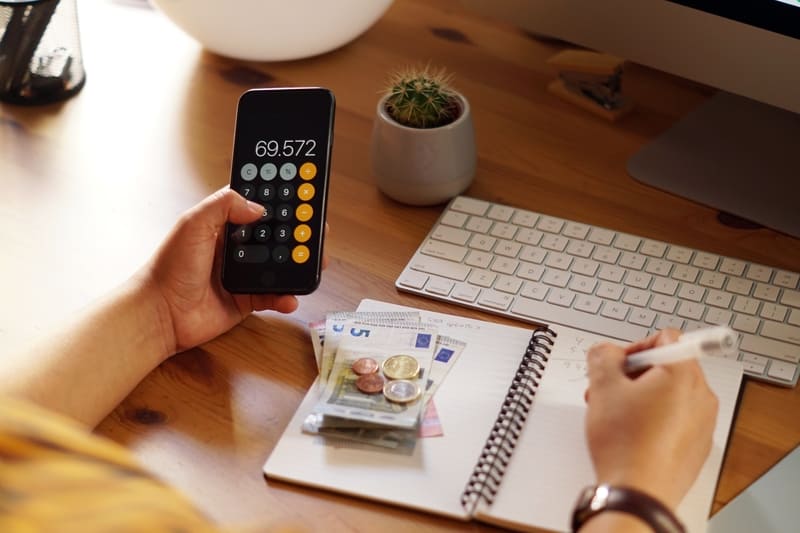
Note: Costs may vary depending on your city, visa category, and whether you apply independently or through a service provider.
Read more: Long-Term Budgeting in Vietnam: Monthly Costs & Smart Saving Tips
8. Tips to Save Time & Avoid Mistakes
Here are some essential tips to make your visa, work permit, or TRC application smoother — and avoid common (and costly) mistakes:
- Apply early: Start your paperwork at least 3–4 weeks before your current visa expires to avoid penalties or overstay issues.
- Back up your documents: Keep scanned copies of your passport, visa, work permit, and TRC in cloud storage and on your phone — just in case.
- Double-check requirements: Always confirm the latest regulations on official government websites or through your employer/agency — rules can change without notice.
- Use reputable visa services: If you’re unsure about legal terms, translations, or paperwork flow, consider hiring a trusted agency to avoid delays or rejections.
- Track your expiration dates: Set calendar reminders for passport, visa, and TRC expiry to plan renewals on time.
Final Thoughts: A Long-Term Life In Vietnam Starts With One Thing: Legal Clarity.
To live and thrive in Vietnam long-term, securing the right visa, work permit, or TRC isn’t just recommended — it’s essential. It gives you legal peace of mind, more freedom, and fewer headaches over time.
At JHouse, we don’t just help expats find the perfect apartment. We’ve supported hundreds of foreigners in building their lives here — from housing to helping them navigate local systems and connect with the right professionals.
Let’s make your long-term life in Vietnam smooth, stable — and truly yours.
JHouse Content Team
The in-depth content development team on housing services for foreigners & Vietnamese in Vietnam. The content is simple, easy to understand, and logically arranged to bring readers useful topics and information from real experiences.
Step-by-Step: How to Settle in Vietnam as a New Expat
Step-by-Step Guide to Settling in Vietnam for New Expats
It can feel overwhelming at first to settle in Vietnam as a new expat. The streets are bustling, the language is unfamiliar, and even ordering a coffee might feel like a mini adventure. But you’re not alone—and you’re not the first to feel a little lost. With the right steps, the transition from outsider to insider can happen faster (and easier) than you think.

Whether you're here for work, a fresh start, or just a change of scenery, Vietnam offers an incredible blend of affordability, opportunity, and cultural richness.
This practical guide will walk you through each stage of your early days—what to expect, what to do, and what to avoid. From sorting out your visa and finding a place to stay, to making local connections and feeling at home, we’ve got you covered. Let’s take it step by step—your new life in Vietnam starts here.
Your New Chapter Starts Here: Why Vietnam Draws Expats In
Picture this: sipping world-class coffee for $1, renting a cozy apartment in a leafy neighborhood, and exploring vibrant street food alleys — all without breaking your budget. Vietnam has quickly become a dream destination for digital nomads, retirees, and professionals looking for both adventure and stability. Cities like Ho Chi Minh City and Hanoi offer a unique blend of opportunity, affordability, and culture that’s hard to resist.
But as exciting as it sounds, settling into life here can feel like navigating a maze — with culture shock, visa confusion, and language hurdles waiting around the corner. That’s where this step-by-step guide comes in: to help you land smoothly, confidently, and ready to call Vietnam home.
Step 1: Understand Your Visa Options
Before you even step off the plane, getting the right visa is your first real step toward settling in Vietnam. It's not the most exciting part of the journey—but it's essential. The visa you choose determines everything that follows: where you can live, how long you can stay, whether you can open a bank account, rent an apartment, or even buy a motorbike.
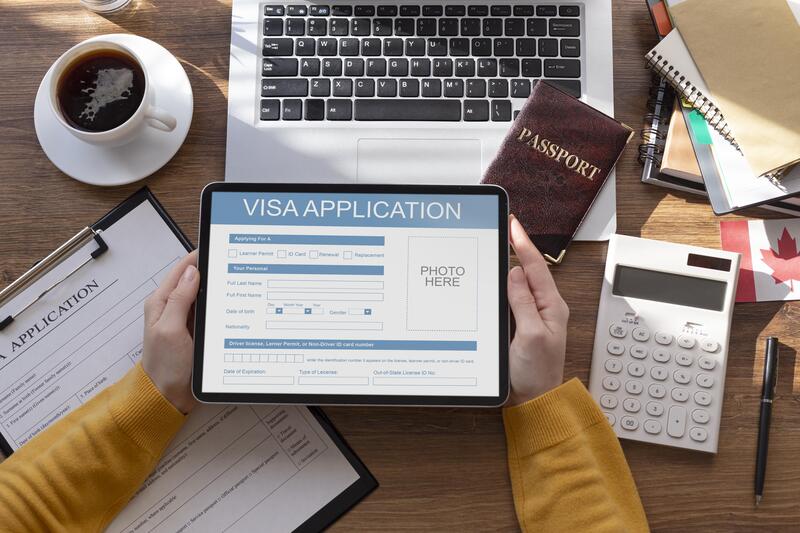
Common options for new expats include:
- Tourist Visa (eVisa): Valid for 30 to 90 days, extendable in some cases.
- Business Visa: Often used by freelancers or remote workers; usually requires a sponsor.
- Investor or DT Visa: For those setting up businesses or investing in Vietnam.
- Spouse/Dependent Visa: For family members of foreign residents.
Tip: If you're planning to stay longer than 6 months, look into converting your visa to a Temporary Residence Card (TRC). It’s your key to staying long-term—no more visa runs, no more guesswork.
Read more: Long-Term Visa, Work Permit & TRC in Vietnam: What You Need to Know
Step 2: Secure a Place to Stay (Short-Term First!)
Don’t rush into a year-long lease the moment you land. Instead, start with a short-term rental in an expat-friendly neighborhood, such as Thao Dien (HCMC) or Tay Ho (Hanoi). It gives you the breathing room to explore different areas, test out your commute, try the local coffee spots—and see where you feel at home.
Once you’ve gotten a feel for the city and found a neighborhood that fits your vibe, you can start looking into longer-term options: serviced apartments, condos, or private homes. It’s all about starting flexible and settling smart.
When you're ready to settle in more permanently, consider working with a trusted local agency like JHouse. They specialize in helping expats find reliable, comfortable housing that suits both your lifestyle and budget.
Read more: Best Districts in HCMC for Long-Term Expats
Step 3: Set Up Your Finances
Want to avoid long ATM lines, crazy foreign card fees, or scrambling to pay rent in cash? Opening a local bank account is one of the smartest early moves you can make as a new expat in Vietnam.
With a local account, you can:
- Get paid (if you’re working)
- Pay rent easily via bank transfer
- Skip high international withdrawal fees

You’ll usually need:
- A valid visa
- Your passport
- Proof of residence (like a rental contract)
Some banks are more expat-friendly than others. Techcombank and ACB offer English-speaking staff and smooth mobile banking apps. Once you’re set up, make sure to download the app and explore options for linking with e-wallets like MoMo or ZaloPay.
Need a step-by-step guide? Check out our full post: Open a Bank Account in Vietnam: A Guide for Expats
Step 4: Get a SIM Card and Internet Access
You’ve landed, dropped your bags, now it’s time to get online. Staying connected from day one is easy in Vietnam—just grab a local SIM card from providers like Viettel, Mobifone, or Vinaphone. You’ll find prepaid cards at the airport, but for better service, head to an official store where they’ll register your SIM with your passport.
Once you’re more settled, consider switching to a monthly data plan—affordable, fast, and perfect for heavy users. Most apartments come with Wi-Fi, and if not, it’s quick and cheap to install.
Useful Information:
- Mobile data in Vietnam is incredibly fast and cheap—think Netflix on the go without breaking the bank.
- You’ll need a local number soon anyway: to open a bank account, book a Grab ride, or just message your landlord.
Step 5: Learn the Basics of Vietnamese Culture & Language
While many locals in cities like HCMC or Hanoi speak some English, making the effort to learn a few Vietnamese phrases can transform your experience. Try saying:
- Xin chào (Hello)
- Cảm ơn (Thank you)
- Bao nhiêu tiền? (How much?)
A simple “Cảm ơn” with a warm smile can turn a transaction into a connection.
Beyond the language, understanding cultural habits is key. For example:
- Always remove your shoes before entering a home.
- Use two hands when giving or receiving something, especially with older people.
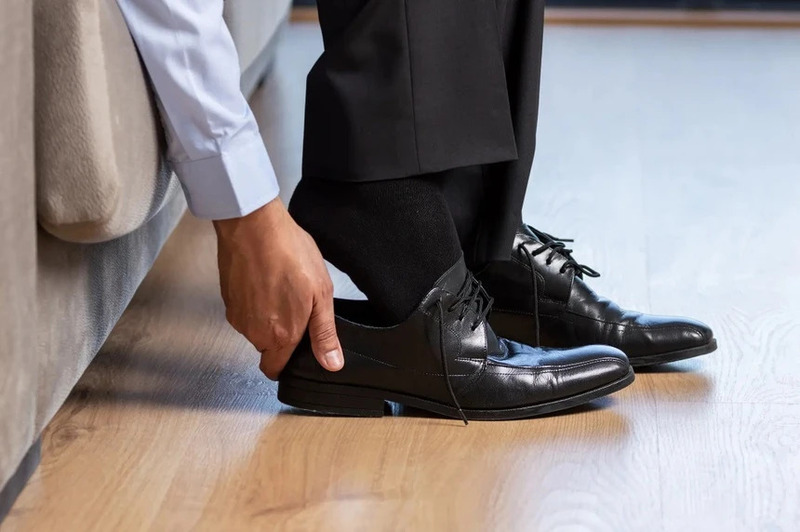
These small gestures go a long way in earning respect and feeling welcome. Want to go deeper? Try apps like Duolingo, join a language exchange café, or ask your Vietnamese friends to teach you local slang over coffee.
Explore more: Long-Term Living in Vietnam: Top Challenges & How to Overcome
Step 6: Take Care of Health Insurance & Medical Access
No one likes to plan for emergencies, but in a new country, having the right health coverage can make all the difference. Vietnam offers excellent private healthcare, especially in cities. For expats, top picks include FV Hospital in Ho Chi Minh City and Vinmec across the country—both offer international standards and English-speaking doctors.
Here’s what you should do early on:
- Get a private insurance plan that covers both outpatient and inpatient care
- Identify the nearest clinic or hospital in your area
- Save key emergency contacts in your phone and on paper
Health insurance in Vietnam is affordable and can save you from costly surprises.
Read more: Healthcare in Vietnam for Expats: Insurance & Hospital Tips
Step 7: Connect with Expat Communities
Moving to a new country can feel isolating—but it doesn’t have to be. Vietnam’s expat community is vibrant, supportive, and full of people who’ve been in your shoes. Whether you're looking for friends, advice, or just someone to grab a coffee with, there's a place for you.

Where to start?
- Join Facebook groups like Expats in Ho Chi Minh City, Hanoi Massive Community or Expats in Vietnam
- Attend language exchange meetups or cultural events
- Explore coworking spaces like Toong, Dreamplex, or The Hive
- Join sports clubs, creative workshops, or social impact groups
These connections can turn a foreign place into a true home.
Read more: Finding Your Tribe: Join Expat Communities in Ho Chi Minh City
Step 8: Consider Your Long-Term Goals
Once you’ve found your rhythm in Vietnam, it’s time to ask: What’s next?
– Are you thinking of staying long term? – Want to start a career, raise a family, or even buy property here?
What may have begun as a short-term adventure could evolve into something far more meaningful. Vietnam is increasingly welcoming to long-term expats—many go on to secure work permits, apply for temporary residence cards, open businesses, or even invest in real estate.
This is your chance to turn a place of discovery into a place of belonging.
Read more: Long-Term Living in Vietnam: A Settling Guide for Expats & Families
Final Thoughts: Start Smart, Settle Well
Settling in Vietnam as a new expat doesn’t have to be overwhelming. With the right information and an open mindset, you can navigate the early steps with clarity—turning culture shock into cultural curiosity, and daily tasks into meaningful routines. From your first visa to your first bowl of phở in a local street corner, every experience is a step toward feeling at home.
Whether you’re here to explore, grow a career, raise a family, or simply live life with more color and connection, Vietnam has a way of welcoming those who embrace it. A temporary move can grow into a lasting sense of belonging.
And when it comes to finding a comfortable place to land, a little local support can go a long way. Let that first step be a strong one.
Begin your journey with confidence—and when you need a place to start, let JHouse guide you home.
JHouse Content Team
The in-depth content development team on housing services for foreigners & Vietnamese in Vietnam. The content is simple, easy to understand, and logically arranged to bring readers useful topics and information from real experiences.
JHouse – Where Great Homes Meet Great People
What Makes JHouse Different
In the ever-evolving rental market of Ho Chi Minh City, JHouse stands out not just as a platform connecting tenants and landlords but as a reliable, human-driven partner in the search for a better way of living. Established in 2019, JHouse has grown to serve over 3,800 tenants from more than 50 countries, with a curated network of 20,000+ properties.
At JHouse, we build more than rental listings — we build trust, foster meaningful relationships, and empower our team to grow alongside our clients. Whether you’re a tenant searching for your ideal apartment, a property owner seeking peace of mind, or a professional eager to build a meaningful career in a supportive environment — JHouse is where your journey begins.

Our agents are more than just brokers — they are Housing Rental Assistants who walk with you, side by side, every step of the way. Because in the end, it’s not numbers that define us — it’s people.
1. Built on Trust – The JHouse Philosophy
Since our founding in 2019, our mission has been rooted in one core belief: real estate is not just about properties — it's about people.
We believe that every person deserves a safe, comfortable, and well-matched living space. That’s why we go beyond simply showing apartments. We listen. We guide. And we ensure every connection we make is grounded in transparency, respect, and shared goals.
Whether you’re a foreign expat navigating Vietnam’s housing market or a Vietnamese tenant seeking a lifestyle upgrade, JHouse is here to simplify your experience — from first click to move-in day, and beyond.
2. For Tenants – Finding a Home, Not Just a House
Relocating to a new city — or a new country — can be overwhelming. At JHouse, we understand both the emotional and practical challenges that come with such a move. That’s why we’ve created a streamlined, human-first rental experience that puts the tenant’s needs at the forefront.
Here’s what sets us apart for tenants:
- Curated Listings: We partner directly with property owners to ensure every apartment on our site is real, verified, and ready to rent.
- Clear Communication: Our team speaks English and Vietnamese fluently — no misunderstandings, no surprises.
- Personalized Service: Share your lifestyle, budget, and preferences, and we’ll match you with spaces that truly fit — not just filter results.
- No Hidden Fees: Transparency is our standard. What you see is exactly what you get.
We don’t just hand you the keys — we make sure you feel at home.
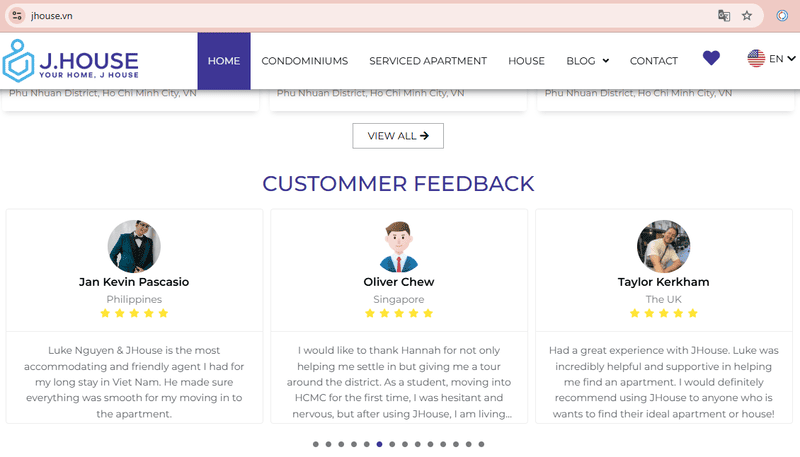
Discover more: Jhouse website
3. For Landlords – Professional Support That Pays Off
Behind every great rental experience is a trusted property owner. At JHouse, we work closely with landlords to maximize occupancy, showcase listings with care, and attract long-term tenants who treat your property like their own.
Why landlords trust JHouse:
- Dedicated Account Management: You’re not alone. Our team helps manage listings, schedule viewings, and follow up with leads.
- Quality Tenants: We screen thoroughly and recommend only the most suitable tenants for your property type and expectations.
- Transparent Process: From pricing to contracts, everything is kept clear, fair, and professional.
- Multichannel Marketing: Your listings appear on JHouse and trusted platforms across expat and local networks.
- Fast turnaround: Our streamlined workflow minimizes vacancy time and helps you maintain consistent rental income.
We understand your time is valuable — that’s why we offer solutions that are both efficient and worry-free.
4. For Sales Agents – A Place to Grow, Belong, and Make a Real Impact
Working in real estate doesn’t have to mean cutthroat sales targets or constant pressure. At JHouse, we do things differently— we invest in people, not just performance.
Our agents are more than brokers. They are Housing Rental Assistants: empathetic, well-trained, and empowered to truly support clients.
What makes JHouse a great place to work?
- Supportive Culture: No cutthroat competition here. We prioritize collaboration over competition.
- Mentorship & Training: New to real estate? We’ve got your back. Experienced but stuck? We’ll help you level up.
- Stable Income Paths: Our commission structure is transparent, fair, and designed to reward real effort.
- Real Impact: You’re not just closing deals. You’re helping people start new chapters of their lives.
- Genuine Team Bonding: From team lunches and family outing trips to shared learning moments — we grow through connection, not just KPIs.
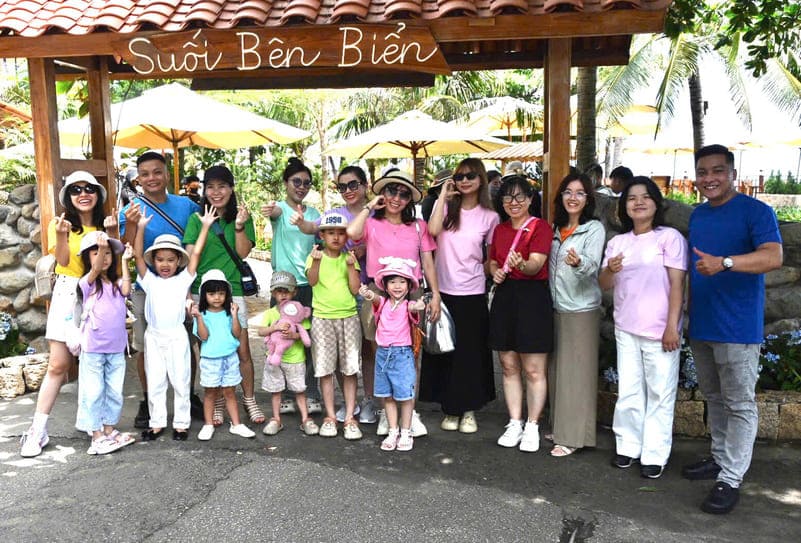
Many of our team members started with little to no real estate experience. Today, they’re confident, capable, and proud of the difference they make every single day.
5. Our Core Values – The JHouse Difference
Across every touchpoint — from listings to lease agreements, phone calls to property tours — we operate by a clear set of values:
- Integrity: We do what we say and say what we do.
- Empathy: We listen deeply and put ourselves in the client’s shoes.
- Responsiveness: We don’t leave messages unread or calls unanswered.
- Consistency: We treat every customer, landlord, and teammate with the same level of care.
- Growth: We’re always learning — and we bring that learning into every interaction.
These values aren’t just words on a wall. They’re how we show up — every day, in every deal.
6. Powered by Partnerships That Expand Value
At JHouse, we don’t just grow — we grow with purpose. Strategic partnerships allow us to go beyond housing and create more comprehensive solutions for the expat community.

In 2024, we proudly partnered with Visa Oriental, offering visa, TRC, and work permit services that simplify legal processes for foreigners living and working in Vietnam. Additionally, our collaboration with Poste expanded our reach to better serve Japanese expats, providing curated housing support tailored to their needs.
These collaborations aren’t just about business. They’re about building bridges that make our clients’ lives easier.
Read more: JHouse and Visa Oriental partnership signing ceremony, providing all visa services, TRC, Work Permit
7. A Track Record You Can Count On
Since launching, JHouse has served thousands of happy renters, collaborated with hundreds of landlords, and grown a strong, committed team of real estate professionals.
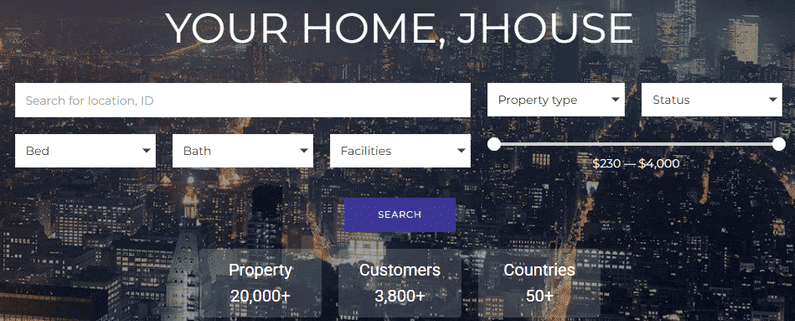
Our success stories span all walks of life:
- Families finding their first home in Vietnam
- Expats who felt supported during their entire relocation journey
- Landlords who have gone from high vacancy to full occupancy
- Young agents who’ve built fulfilling careers through guidance, not pressure
We’re proud of our numbers — but even prouder of the relationships we’ve built.
Explore more: 22+ Countries Have Been Serviced By JHouse8. Our Neighborhoods – Deep Knowledge, Local Insight
We specialize in high-demand districts where modern living meets local charm:
- Thao Dien (District 2): International schools, riverside apartments, expat-friendly lifestyle
- Binh Thanh: Affordable high-rises with quick access to District 1 and a wide range of local markets.
- District 7: Family-friendly, peaceful, and close to international schools and global businesses.
- District 1: City-center convenience for busy professionals who want to be near work and nightlife.
- Phu Nhuan: Centrally located with a strong local vibe— offering quick access to downtown and the airport.
- Tan Binh: Ideal for frequent travelers and aviation professionals — close to Tan Son Nhat Airport.
- District 3: A blend of old Saigon charm and modern convenience, with leafy streets and colonial-era character.
Our team knows these neighborhoods inside out — which means we don’t just offer listings, we offer local insight that makes relocating simpler and living smoother.
9. Beyond the Transaction – Real Relationships
At JHouse, signing the lease isn’t the end — it’s the beginning of a new chapter. We continue to support both clients and landlords with:
- Post-move-in support
- Maintenance coordination
- Lease extension reminders
- Market updates and renewal advice
Because to us, you’re never just a one-time client — you’re part of the JHouse family.
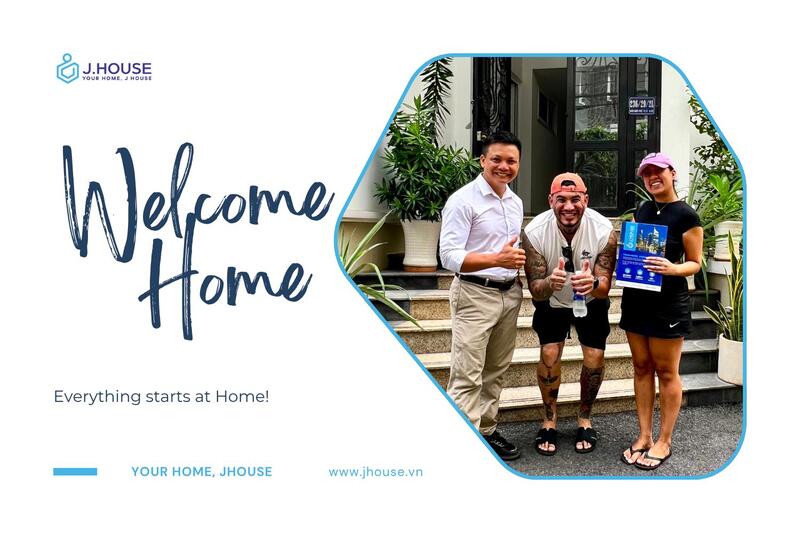
10. Technology with a Human Touch
At JHouse, technology is here to support — not replace — the human experience.
Our website is designed to be simple, mobile-friendly, and easy to navigate. But behind every listing is a real person ready to answer your questions, guide your choices, and walk with you through the process. Because while tech can connect — it’s people who truly care.
JHouse – A Journey Made for You
Whether you’re:
- A foreigner looking for a soft landing in a new country
- A local seeking a place to grow
- A property owner searching for a trusted partner
- Or a sales agent ready to build meaningful work
JHouse is built for you — and built to last with you.
We believe that finding a great home should be simple, honest, and human. That’s why we’re not just a real estate platform — we’re a community of people who care.
With a strong foundation of trust, a dedication to service, and a team guided by values, we’re here to support your journey — from first steps to long-term success.
Let JHouse be your home base — because when homes are chosen with care, life simply feels better.
JHouse Content Team
The in-depth content development team on housing services for foreigners & Vietnamese in Vietnam. The content is simple, easy to understand, and logically arranged to bring readers useful topics and information from real experiences.
Thao Dien – The Ideal Living Paradise in Ho Chi Minh City
Thao Dien: One Of The Most Livable Neighborhoods In Ho Chi Minh City
Peaceful. Modern. International. Thao Dien living has become the gold standard for those seeking more than just a place to stay — but a lifestyle filled with ease, inspiration, and connection. Just minutes from downtown Saigon, this neighborhood blends modern comforts with leafy streets, riverside cafés, and a vibrant international community.
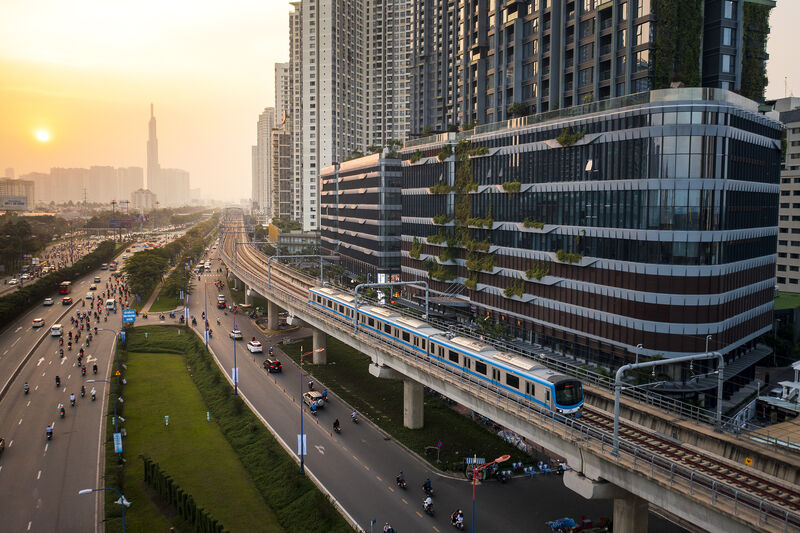
Whether you’re a remote professional, long-term expat, or a family looking for a better quality of life, Thao Dien offers a rare experience of living well — where each day feels balanced and each moment feels like home.
It’s not just a neighborhood; it’s a feeling — a harmony of peaceful surroundings, global energy, and elevated living. In a fast-paced city, Thao Dien redefines what it means to truly live.
Let’s explore what makes this vibrant enclave the ideal place to call home in Ho Chi Minh City.
A Neighborhood That Nurtures Wellbeing
Life in Thao Dien flows at a gentler pace. There’s space to breathe, walk, and think. Streets are shaded with trees. Morning runs along the Saigon River or yoga in a boutique studio feel as natural as grabbing a “bánh mì” on your way to work. Everything is designed to nourish both body and soul.
Serviced apartments, condos, and villas often come with rooftop pools, private gyms, gardens, and quiet coworking spaces. Grocery shops sell organic produce. Cafés serve oat milk lattes next to Vietnamese drip coffee. It’s a lifestyle built around balance.
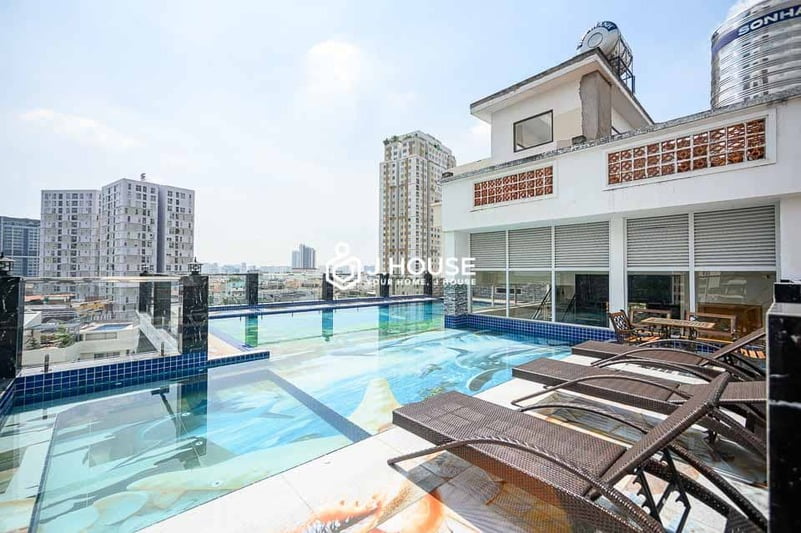
Even in the heart of a growing city, Thao Dien protects its calm. Noise is replaced by birdsong, and chaos by calm routines. You can live slowly without losing connection — and that’s what makes the neighborhood a true haven for wellbeing.
Read more: Outstanding Amenities When Renting an Apartment in Thao Dien
A Place Where Cultures Meet, Not Clash
What makes Thao Dien special isn’t just the buildings — it’s the people. Step into any café and you’ll hear accents from around the world. Families from Europe, Asia, the Americas… they’ve all found something here that feels like home. And yet, the neighborhood has preserved its Vietnamese charm — from street vendors selling fresh fruit to elders playing chess under the trees.

Events, workshops, and open-air markets bring people together, creating a rich cultural fabric that feels inclusive and alive. Community groups organize everything from language exchanges to sustainability initiatives, encouraging neighbors to connect and contribute to local life. In Thao Dien, cultural diversity isn’t just accepted — it’s celebrated and lived every day.
Explore more: Thao Dien: A Friendly Community for Expats
Designed For Families, Loved By Professionals
From modern young couples to growing families, Thao Dien caters to every lifestyle. It’s one of the few places in HCMC where international-standard schools sit within walking distance from home. The British International School, ISHCMC, and EIS are among Asia’s most respected names, providing education that matches global expectations.

Parents find comfort in knowing their children are learning and growing in safe, stimulating environments — while enjoying the convenience of a short commute. For working professionals, that balance between career and family life is essential. Being able to live, work, and raise children all within a connected, supportive neighborhood is a rare privilege in a fast-paced city. With after-school activities, green parks, and weekend community events all nearby, families don’t just live in Thao Dien — they thrive here.
Read more: International Schools in Thao Dien – Advantage for Expats
Modern Apartments That Feel Like Retreats
Thao Dien’s rental market offers more than square meters — it offers sanctuary. Whether you're looking for a cozy serviced studio, a pet-friendly condo with a balcony, or a luxurious riverside apartment, JHouse curates living spaces with care — focusing not just on features, but on how each home makes you feel. Every listing is handpicked for comfort, functionality, and location — helping you find a space that fits your lifestyle, not just your budget.
Read more: Top Comfortable Apartments with Full Amenities in Thao Dien
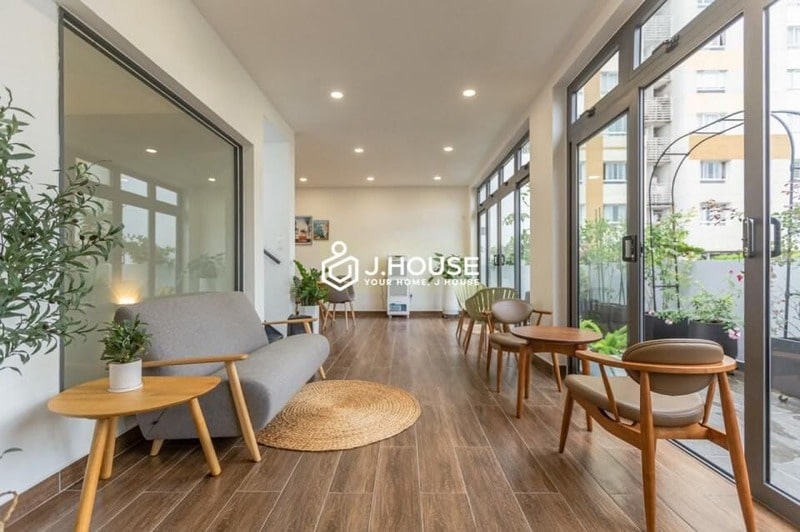
These homes are not just about function — they’re about feeling good, every day. From natural light to thoughtful layouts, smart furnishings to peaceful surroundings, every detail contributes to a sense of well-being. And with flexible price points and housing types, there’s something for individuals, couples, and families alike — whether you’re staying short term or settling down for years.
Explore more: Apartment Rental Costs in Thao Dien: The Right Price for You
Seamless Living, Seamless Movement
Despite its calm vibe, Thao Dien connects quickly to the pulse of the city. With Metro Line 1 now officially in operation and major roads just minutes away, you’re never far from District 1, Thu Duc, or key business zones. Public buses run through main arteries, while ride-hailing apps, taxis, and even shuttle services ensure flexible and affordable mobility for residents.
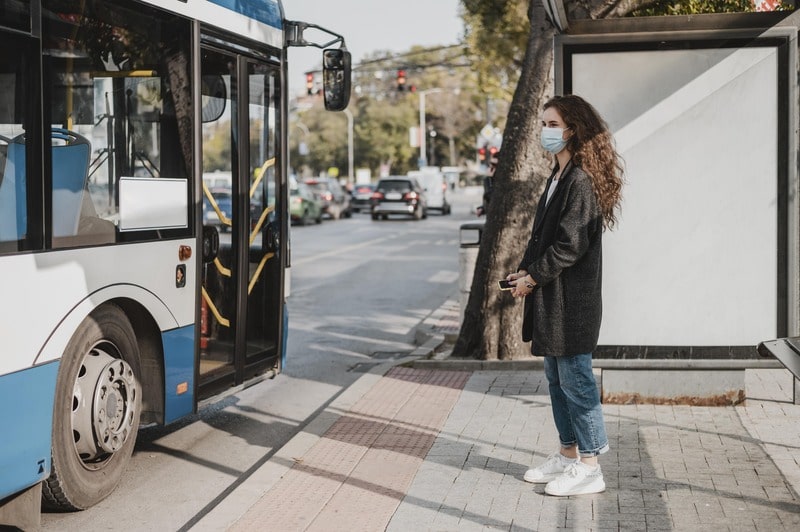
Whether you're commuting to work, heading to the airport, or exploring weekend spots in the city, getting around is smooth and straightforward. This seamless connectivity allows residents to enjoy Thao Dien’s serenity without sacrificing accessibility — a rare balance that transforms daily travel into something effortless.
Details: Thao Dien – Ideal Urban Area with Modern Public Transport System
The Perfect Base For Modern Work-Life Balance
For digital nomads and remote professionals, Thao Dien offers something rare: productivity with a side of peace. Quiet cafés double as offices. Coworking spaces come with river views. Internet speeds are fast, and communities of freelancers are growing.
Entrepreneurs will also find boutique office options and proximity to key districts for meetings and operations. And when the workday ends, wellness is just steps away — from yoga classes and riverside walks to healthy restaurants and community events that help restore your balance. In Thao Dien, work and life don’t compete — they complement each other beautifully.
Read more: Thao Dien – The Ideal Workplace with Many Business Centers
More Than Location: A Living Experience
Many expats compare Thao Dien to global hotspots like Bali’s Canggu or Bangkok’s Ari — but with a Saigon twist. It’s green but urban. Chic but friendly. International but grounded in Vietnamese rhythm.
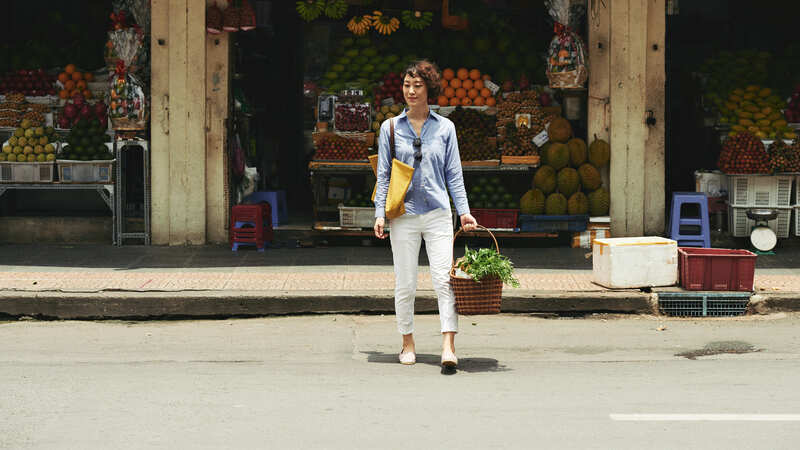
When comparing districts in HCMC, none strikes this balance better. Here, you can sip single-origin coffee in a stylish café before wandering into a street market for fresh herbs. You can work from a sleek coworking lounge in the morning, then take a sunset jog by the river. This contrast—and—harmony, is what makes life in Thao Dien not just livable, but truly enjoyable. It’s not a destination you pass through, but a place you grow into.
Explore more: Thao Dien vs Other Districts: Which Is the Best Choice?
Final Thoughts: Why Thao Dien Is Hcmc’s Ideal Living Paradise
You don’t come to Thao Dien just to live — you come here to feel alive. Thao Dien is more than a residential area; it’s a sanctuary for those seeking balance, connection, and inspiration. It’s where riverside calm meets city convenience, where global families thrive, and where each corner feels crafted for comfort, wellness, and modern living.
Whether you're settling in for a long-term stay or discovering Ho Chi Minh City for the first time, Thao Dien invites you to slow down, breathe deeper, and enjoy life more intentionally. It's a place where everyday routines become rituals — from peaceful mornings to community-filled evenings.
If Ho Chi Minh City is the heart of modern Vietnam, Thao Dien is the breath that keeps it centered.
Let JHouse help you find your place in this paradise.
JHouse Content Team
The in-depth content development team on housing services for foreigners & Vietnamese in Vietnam. The content is simple, easy to understand, logically arranged to bring readers useful topics and information from real experiences.
Top 10 Comfortable Apartments with Full Amenities in Thao Dien
Explore The Top Apartments For Modern Living In Thao Dien
If you’re searching for comfortable apartments with full amenities in Thao Dien, this guide is made for you.
Known for its riverside charm, international vibe, and walkable lifestyle, Thao Dien has become one of Ho Chi Minh City’s most desirable residential areas. From fully furnished condos with smart home systems to boutique serviced apartments offering cleaning and concierge, this neighborhood offers more than just housing—it’s a lifestyle upgrade.
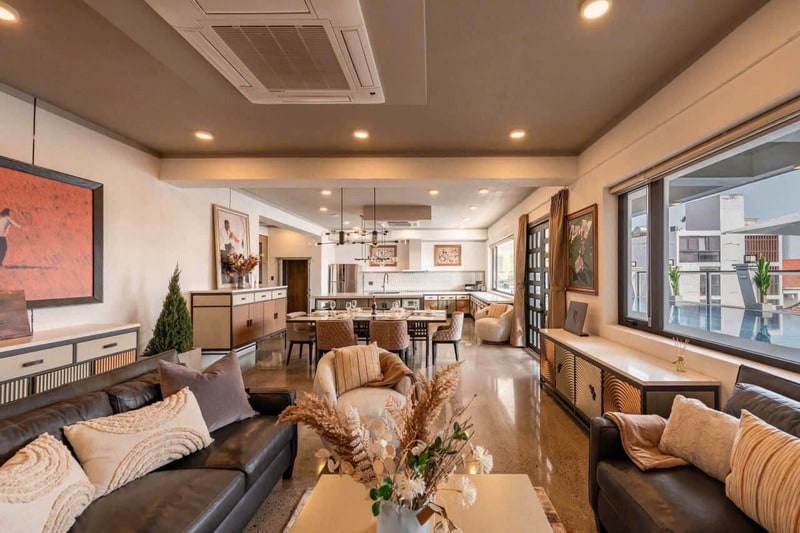
In this article, we highlight the top apartments that combine comfort, convenience, and community—tailored for solo dwellers, young couples, growing families, or anyone embracing a better way of living.
Each apartment on this list has been carefully curated for its quality of life, modern design, and seamless access to amenities like gyms, pools, leafy streets, and vibrant cafes. Whether you're settling down for the first time or simply ready for a change of scene, Thao Dien might just be the place you’ve been looking for.
Why Thao Dien Is The Ideal Place For Comfortable Apartment Living
Located in District 2, Thao Dien is one of the most expat-friendly neighborhoods in Ho Chi Minh City. It's well-loved for its international schools, boutique cafes, yoga studios, and peaceful atmosphere. The area balances urban access and tranquil surroundings, making it ideal for families, digital nomads, and professionals alike.
Key Advantages:
- A strong international community
- Wide range of modern apartments with full amenities
- Convenient access to Metro Line 1 and Saigon Bridge
- Close to supermarkets, healthcare, and top restaurants
Read more: Thao Dien – The Ideal Living Paradise in Ho Chi Minh City
What Makes An Apartment "Comfortable"?
When searching for a comfortable apartment, it's about more than just furniture. It's about lifestyle. The following features are typically found in high-quality apartments in Thao Dien:
- Fully furnished interiors with smart layouts
- Well-equipped kitchens with Western appliances
- Air conditioning in every room
- Spacious balconies or outdoor spaces
- Access to amenities: gym, swimming pool, security, parking, green areas
- Quiet, low-traffic surroundings
These features provide peace of mind and help residents truly feel at home.
Read more: Outstanding Amenities When Renting an Apartment in Thao Dien
Top 10 Comfortable Apartments In Thao Dien
1. D'Edge Thao Dien
Type: Luxury Apartment
Located in the heart of Thao Dien, D’Edge is an upscale residence by CapitaLand offering high-end living and elegant design. The rooftop infinity pool, panoramic river views, and wellness-focused amenities make it one of the most sought-after addresses in the neighborhood. Apartments are modern, fully furnished, and designed with privacy and natural light in mind.

Why it's worth renting: Prime location, resort-style facilities, premium finishes, ideal for professionals or families seeking serenity and style.
2. The Ascent Thao Dien
Type: Modern Condo
Known for its Japanese-inspired design and peaceful ambiance, The Ascent offers well-thought-out layouts with abundant natural light. The rooftop infinity pool overlooks the city skyline, and the building includes a sauna, a jacuzzi, a gym, and lush gardens. Many residents appreciate its location near eateries, coffee shops, and Thao Dien's social scene.
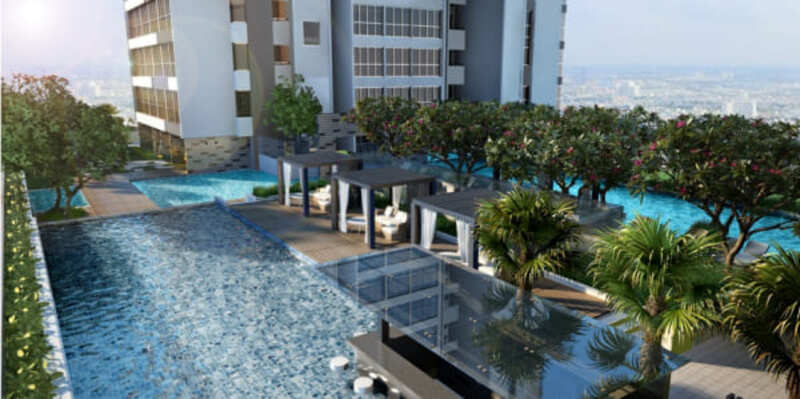
Why it's desirable: Resort-like experience, close to restaurants, smart design, peaceful setting.
3. Masteri Thao Dien
Type: Condo Apartment with Semi-Serviced Options
Masteri is one of the most well-known residences in Thao Dien, thanks to its affordability, convenience, and vibrant community. Directly connected to Vincom Mega Mall, this location provides residents with quick access to shopping, dining, and entertainment. The complex includes a large pool, gym, landscaped gardens, and playgrounds. Many units come with high-speed internet and optional weekly cleaning.
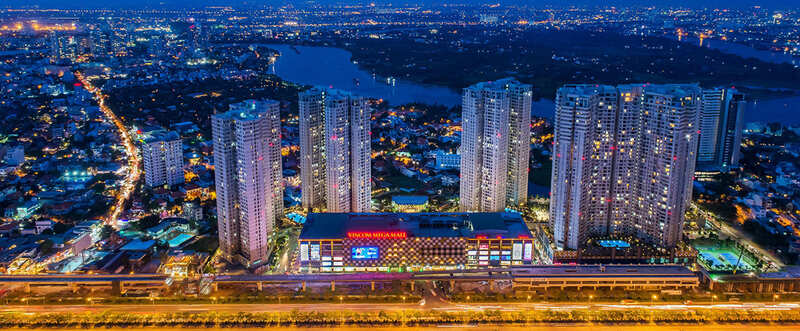
Key amenities: Infinity pool, gym, BBQ area, green space, direct mall access, semi-serviced convenience.
Contact JHouse to schedule a viewing today
4. Gateway Thao Dien
Type: High-End Apartment
Situated at the entrance of Thao Dien, Gateway offers a luxurious and quiet retreat. Apartments feature floor-to-ceiling windows, modern kitchens, and sophisticated decor. The complex boasts a private lounge, fitness center, pool, and reception services. It's especially favored by professionals seeking a refined, quiet lifestyle with fast access to central districts.
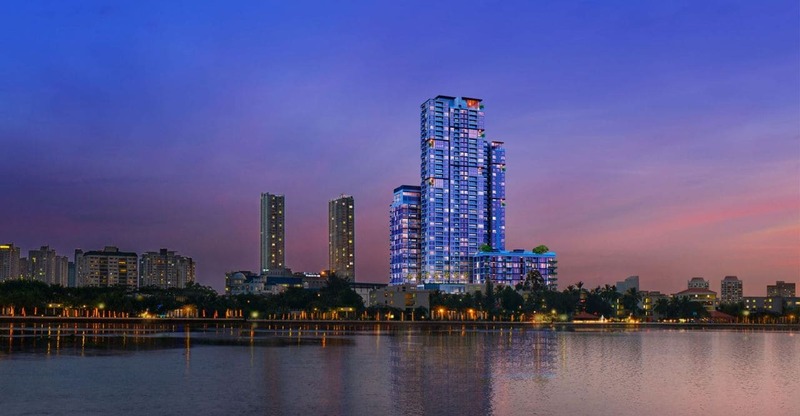
Highlights: Quiet and upscale, full amenities, high-end finishes, ideal for executive expats.
5. ICASA Serviced Apartment
Type: Boutique Serviced Apartment
ICASA is a boutique-style residence known for its minimalist aesthetics and serene ambiance. Units range from studio to 1-bedroom, each with a private kitchen, weekly housekeeping, and a peaceful garden-facing layout. Apartments are fully equipped and decorated with neutral tones, making them ideal for those who value tranquility and simplicity. Residents enjoy garden courtyards, a small but elegant pool, and attentive on-site service. It’s a great option for single expats or remote workers wanting peace and focus.
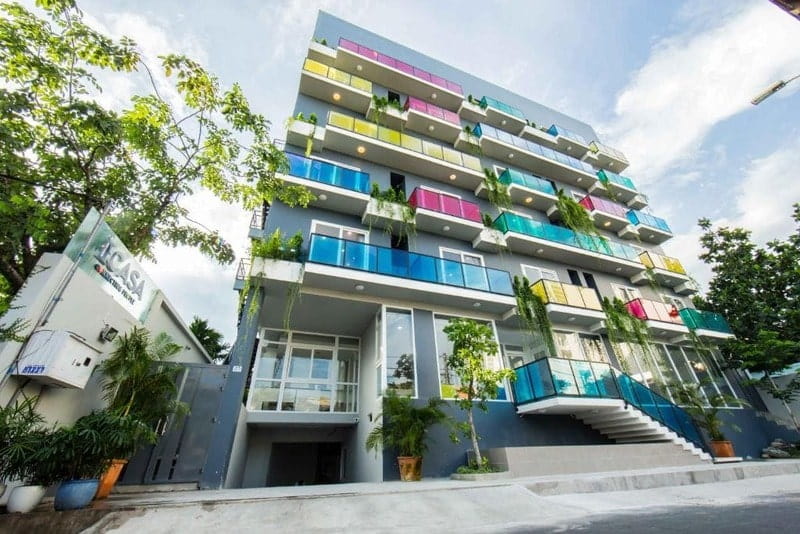
Who it's for: Expats looking for a peaceful, design-oriented living space with hotel-level care.
6. Q2 Thao Dien
Type: Luxury Condo
Q2 is a newer project by Frasers Property, known for smart architecture and vibrant shared spaces. Apartments come with smart home systems, quality interiors, and generous balconies. The development includes an infinity pool, kids’ play zone, BBQ terrace, yoga space, and riverside walkways.
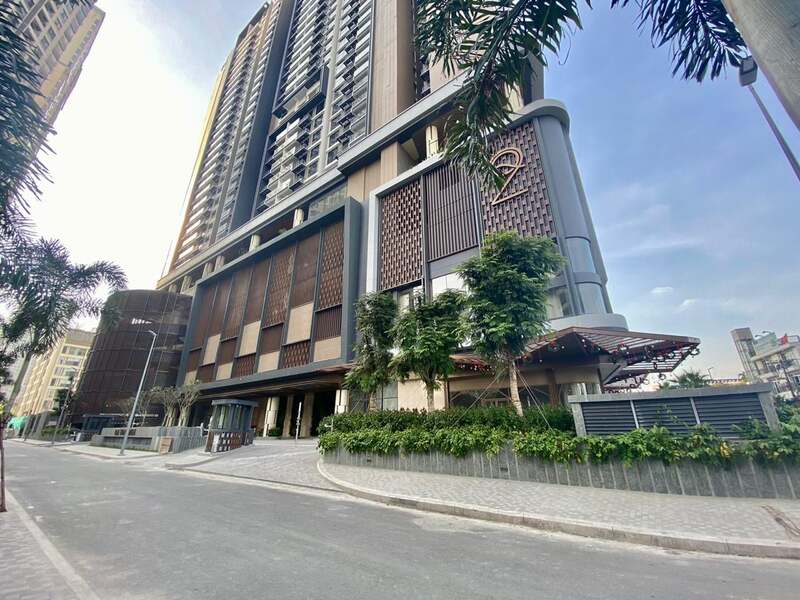
Top features: Smart home systems, infinity pool, riverside views, high security.
7. The Nassim
Type: Ultra-High-End Condo
The Nassim defines luxury in Thao Dien. With only a few units per floor and private lifts, it offers unparalleled privacy. Most apartments have panoramic views of the Saigon River, designer interiors, and large open-plan layouts. Residents benefit from concierge service, a tranquil pool area, and an exclusive fitness center.
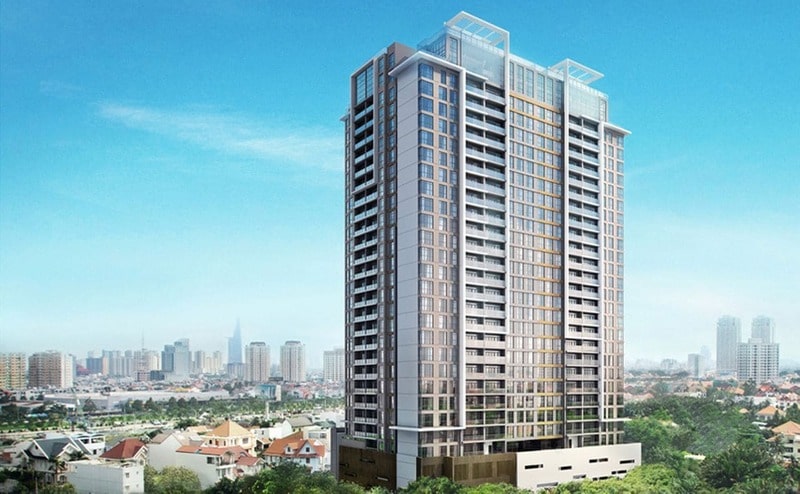
Best for: Those seeking elegance, quiet, and high-end comfort in a low-density environment.
8. Thao Dien Green
Type: New Premium Apartment
Recently launched, Thao Dien Green is tailored for eco-conscious and modern renters. Units are designed to maximize airflow and natural light, and the building integrates sustainable features throughout. It offers a riverside location, gym, swimming pool, yoga deck, and dedicated pet area.
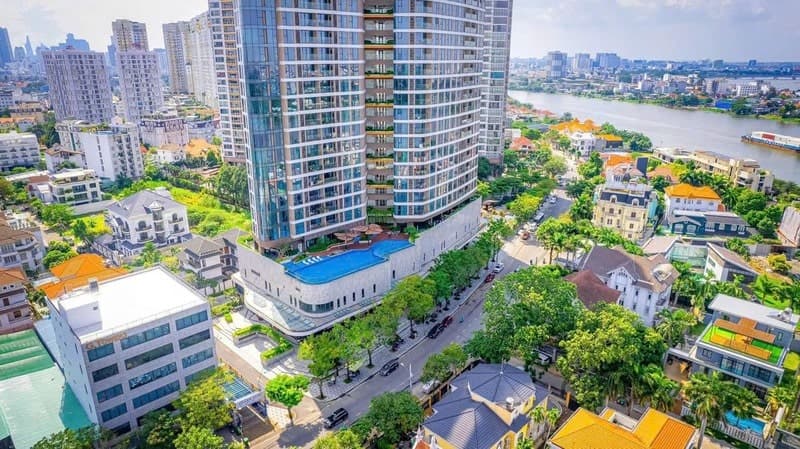
Standouts: Green design, riverside balconies, pet-friendly policies, new modern feel.
9. Lumiere Riverside
Type: Smart Eco Apartment
Lumiere Riverside merges modern architecture with sustainable living. Developed by Masterise Homes, the apartments come with high-end finishes, smart home tech, and luxury furnishings. Amenities include landscaped gardens, co-working areas, a wellness spa, and multiple pools.
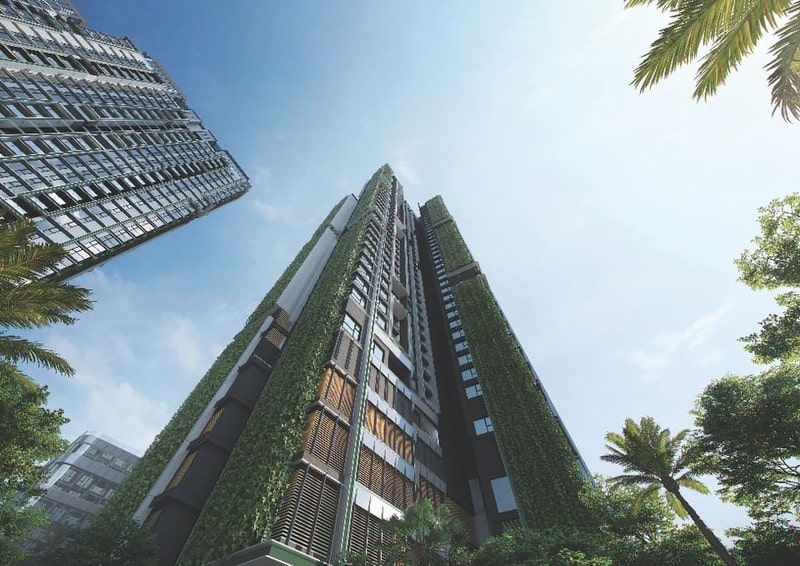
Perfect for: Tech-savvy renters looking for stylish, sustainable, and connected living.
10. The Vista An Phu
Type: Condo Apartment (near Thao Dien)
Though technically outside Thao Dien, The Vista is a strong contender due to its large units and resort-like amenities. Apartments offer generous layouts, often 130 sqm or more, and great value for families. Facilities include a full-size gym, tennis courts, a kids' pool, and on-site shops.
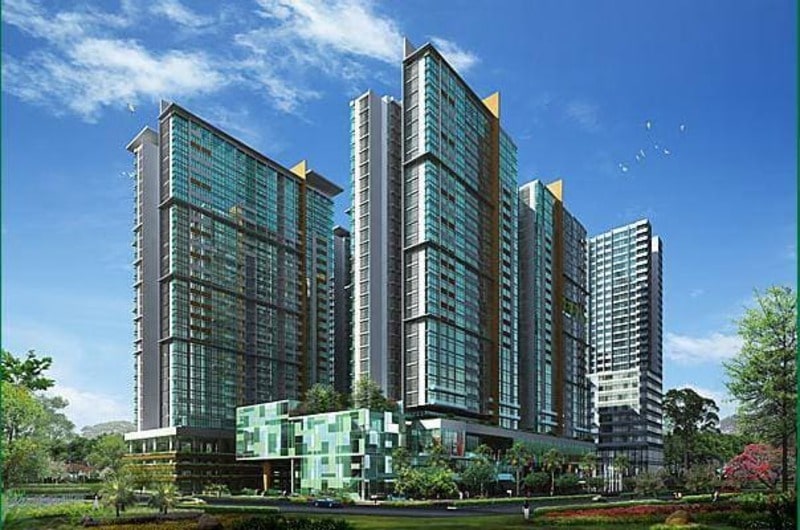
Why consider it: Spacious living, strong expat community, excellent for long-term stays.
Quick Comparison Table
| Apartment Name | Type | Suitable For | Notable Features |
| D'Edge Thao Dien | Luxury Apartment | Professionals, families | Rooftop pool, river view, wellness design |
| The Ascent | Condo | Professionals, couples | Rooftop pool, central location |
| Masteri Thao Dien | Condo (Semi-serviced) | Families, digital nomads | Mall access, green space |
| Gateway Thao Dien | Condo | Executives, small families | High-end finishes, privacy |
| ICASA | Serviced Apartment | Singles, minimalists | Cozy, cleaning service |
| Q2 Thao Dien | Luxury Condo | Families, young expats | Smart home, riverside view |
| The Nassim | Ultra Luxury Condo | Executives, retirees | Quiet, exclusive, river view |
| Thao Dien Green | New Condo | Couples, pet lovers | Pet-friendly, new facilities |
| Lumiere Riverside | Smart Eco Apartment | Tech-savvy renters | Eco design, smart home integration |
| The Vista An Phu | Condo (District 2 – near Thao Dien) | Families, long-term expats | Tennis courts, big layouts |
Conclusion
Finding a comfortable apartment in Thao Dien can feel overwhelming, but knowing what the area offers makes it much easier. Beyond its full-service amenities and peaceful surroundings, it offers a true lifestyle upgrade — one that blends urban convenience with the charm of riverside living.
Whether you’re drawn to high-end luxury or cozy community living, Thao Dien has a place that matches your rhythm. Let your daily life unfold with ease — from morning walks under tree-lined streets to evening downtime in a space that reflects your style and values.
Explore these top apartments today — JHouse will be your guide to making Thao Dien your new home.
JHouse Content Team
The in-depth content development team on housing services for foreigners & Vietnamese in Vietnam. The content is simple, easy to understand, and logically arranged to bring readers useful topics and information from real experiences.
Thao Dien – The Ideal Workplace with Many Business Centers
Why Thao Dien Is The Ideal Workplace
For professionals building a life in Ho Chi Minh City — especially those working remotely or on flexible schedules — choosing where to live is about more than location— it's about lifestyle, inspiration, and access.
In Ho Chi Minh City, Thao Dien business centers stand out as part of an ideal workplace, not because the area is trendy, but because it's built for balance.

With a growing network of coworking spaces and thoughtfully designed living spaces, Thao Dien blends productivity and peace in ways few neighborhoods can. Here, you’re not just close to the office — you're connected to a community, surrounded by nature, and supported by a modern work-life infrastructure. If you’re seeking more than just a desk, Thao Dien may be exactly where your best work begins.
1. A Business-Friendly Neighborhood In District 2
Thao Dien has earned a reputation as a peaceful and upscale area, but it’s also rising as a professional environment in Thao Dien. Whether you’re a digital nomad, a startup founder, or part of a remote team, this neighborhood offers a hybrid work setup that’s both convenient and inspiring.
The area is home to a growing number of coworking spaces in Thao Dien, such as:
- The Hive Villa – A beautifully designed coworking space with a pool and garden café.
- Dreamplex Thao Dien – A stylish, modern space offering flexible memberships, meeting rooms, and community events.
- The 4S Villa – A charming coworking space set in a renovated villa, featuring outdoor lounges, garden workspaces, and a relaxed professional atmosphere.
These flexible office spaces in Thao Dien support everything from brainstorming sessions to virtual calls — all within walking distance of stylish cafés and riverside dining.
2. Why Remote Work Thrives In Thao Dien
One of the biggest pain points for remote professionals is finding a work setting that fuels productivity without sacrificing comfort. Thao Dien supports remote work by offering:
- High-speed internet and reliable infrastructure
- A calm, green atmosphere that reduces stress
- Easy access to wellness amenities like gyms, yoga studios, and organic shops
- A walkable layout with tree-lined streets and outdoor cafés

If you’ve ever felt burned out working from home in a noisy city, you’ll find Thao Dien’s peaceful neighborhood a refreshing change. It’s thoughtfully built for peace of mind — exactly what professionals need to stay balanced and productive.
Read more: Outstanding Amenities When Renting an Apartment in Thao Dien
3. Living Close To Work: Rent An Apartment Near Business Centers
One major advantage of working in Thao Dien is that you don’t have to trade comfort for convenience. Unlike most business districts, Thao Dien lets you live just minutes away from where you work, while still enjoying tree-lined streets, green spaces, and a community vibe.
Many serviced apartments in Thao Dien are within walking distance of coworking spaces, cafes, fitness studios, and lifestyle amenities. This allows professionals to design their day freely — from a smooth morning routine to relaxing evenings without long commutes.
Whether you prefer a cozy studio or a riverside view apartment, Thao Dien offers a wide range of rentals to fit your lifestyle. Imagine working steps from home, grabbing lunch on your favorite terrace, and ending your day with a sunset jog by the river — that’s what live-work-play truly feels like.
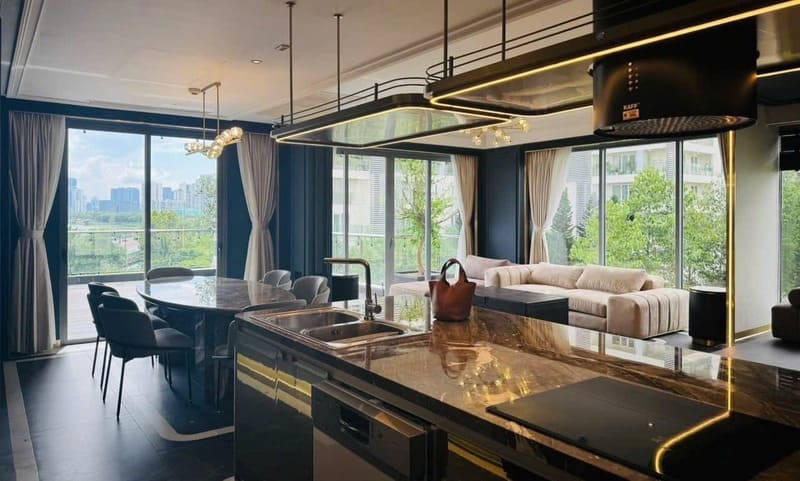
See more: Top Comfortable Apartments with Full Amenities in Thao Dien
4. Meet Like-Minded Professionals And Build Your Network
Thao Dien isn’t just a place to live or work — it’s a place to grow. The neighborhood is home to a vibrant, creative community of entrepreneurs, designers, freelancers, and digital nomads from around the world.
You’ll find:
- Professional networking events at coworking spaces
- Workshops and startup meetups
- Weekend brunch meetups hosted by expat-run cafés and social clubs
Many residents say they’ve found new collaborators, mentors, or even business partners just by bumping into someone at their local coffee shop. Whether you’re looking to build a team, find co-founders, or simply meet people who “get” your journey — Thao Dien makes it easy to connect.
Read more: Thao Dien: A Friendly Community for Expats
5. Where Lifestyle And Work Go Hand-In-Hand
What sets Thao Dien apart is its balanced, fulfilling lifestyle. Unlike the crowded central districts, this area offers:
- Riverside parks for morning walks and fresh air
- Cafés with co-working setups like The Loop or Dolphy Café
- International restaurants for business lunches or after-work drinks
- Modern gyms, yoga studios, and wellness centers

Thao Dien promotes wellbeing through design — helping professionals avoid burnout and stay inspired. Whether you work from home, in a coworking space, or split time between locations, the liveability of Thao Dien enhances your overall performance.
Read more: Thao Dien – The Ideal Living Paradise in Ho Chi Minh City
6. The Rise Of Business Services And Startups
As more companies embrace flexible models and hybrid work becomes the new normal, Thao Dien is quickly becoming a hotspot for startups and remote-friendly businesses.
Local real estate agencies like JHouse have observed a clear trend: an increasing number of digital nomads, independent consultants, and small business owners are choosing Thao Dien as their base. Why? Because here, they can combine lifestyle and work in a way that supports both productivity and personal well-being.
Some recent developments include:
- New serviced offices in Thao Dien catering to small businesses and startups
- Flexible office spaces in Thao Dien that allow teams to scale operations with ease
- Short-term lease options are perfect for business travelers or project-based professionals
- Virtual office packages for international companies seeking a local footprint
For founders and professionals, it's no longer about just renting a desk — it's about finding a place that helps ideas grow. Thao Dien offers not just infrastructure, but an atmosphere that supports experimentation, collaboration, and international expansion.
Read more: Why do expats choose to rent apartments in Thao Dien?
7. Convenient Access To The City’s Central Business Districts
While Thao Dien feels like a retreat, it’s far from isolated. Its strategic location in District 2 allows residents to move easily between home, work, and other parts of the city — an essential feature for busy professionals. With
- The Saigon Bridge is only a few minutes away, offering quick access to central districts
- Metro Line 1 – Thao Dien Station is now officially operational, connecting Bến Thành (District 1) to Suối Tiên in Thu Duc City
- Abundant ride-hailing apps, taxis, and shuttle services are readily available
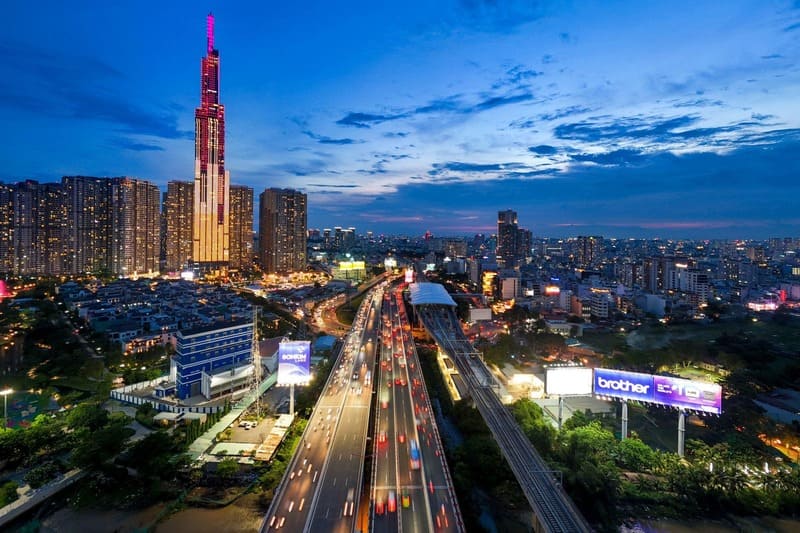
Professionals can easily commute to District 1, Thu Duc City, or even Tan Son Nhat Airport. You get all the benefits of a modern business environment — without the daily chaos.
Read more: Thao Dien – Ideal Urban Area with Modern Public Transport System
8. A Smart Choice For Long-Term Professionals
If you’re planning to settle down long-term in Ho Chi Minh City, Thao Dien offers unmatched value. — not just as a place to live, but as a complete ecosystem that supports your lifestyle, work, and wellbeing. Here’s why:
- Long-term rental options with stable prices
- Safe, peaceful surroundings with low traffic
- International clinics, banks, and supermarkets nearby
- A vibrant expat-friendly area with English-speaking services
Many foreign professionals who initially came for short assignments or remote work contracts end up renewing their leases year after year.
Thao Dien grows on you — not only for its visual charm and laid-back atmosphere, but also for its thoughtfully built infrastructure, sense of safety, and international vibe that supports both personal and professional goals. It’s one of the few neighborhoods in Ho Chi Minh City where you can truly live, work, and thrive without constantly commuting or compromising on quality of life.

If you’re thinking long-term, Thao Dien isn’t just a smart choice — it’s a place where life naturally fits.
Read more: Thao Dien vs Other Districts: Which Is the Best Choice?
Final thoughts: why Thao Dien works for work
Thao Dien isn’t just trendy — it’s practical, professional, and inspiring. For modern professionals and remote workers, this neighborhood provides:
- Business centers and coworking spaces that support productivity
- Modern apartments near workspaces, create seamless daily routines
- A creative, international community for connection and growth
- Easy access to both lifestyle perks and business services
If you’re tired of long commutes, uninspiring workspaces, or noisy neighborhoods, it may be time to consider a new kind of work-life balance. Thao Dien allows you to focus on what matters most — your work, your wellness, and your growth — all within walking distance. With the right apartment and a supportive business environment, your everyday life becomes easier, smoother, and more meaningful.
Explore apartments and business centers in Thao Dien with JHouse — and let us help you find a place that feels like home, works like an office, and grows with your ambitions.
JHouse Content Team
The in-depth content development team on housing services for foreigners & Vietnamese in Vietnam. The content is simple, easy to understand, and logically arranged to bring readers useful topics and information from real experiences.
Thao Dien vs Other Districts: Which Is the Best Choice?
Thao Dien Vs Other Districts: Where Should Expats Live In HCMC?
Moving to Ho Chi Minh City? Struggling to decide between Thao Dien and other districts? Let JHouse help you discover which area best suits your lifestyle and long-term goals.
Thao Dien: A Modern Village By The River
Living in a bustling city while still enjoying a slower, more mindful pace — that’s why so many expats choose Thao Dien. Here, you’ll find quiet mornings with hand-crafted coffee, leisurely afternoons under leafy trees, and an international community enjoying a balanced, fulfilling lifestyle.
Close enough to the city center, yet far enough to offer privacy and a higher quality of living, Thao Dien strikes that rare balance many are searching for — especially those seeking comfort, connection, and convenience in daily life.
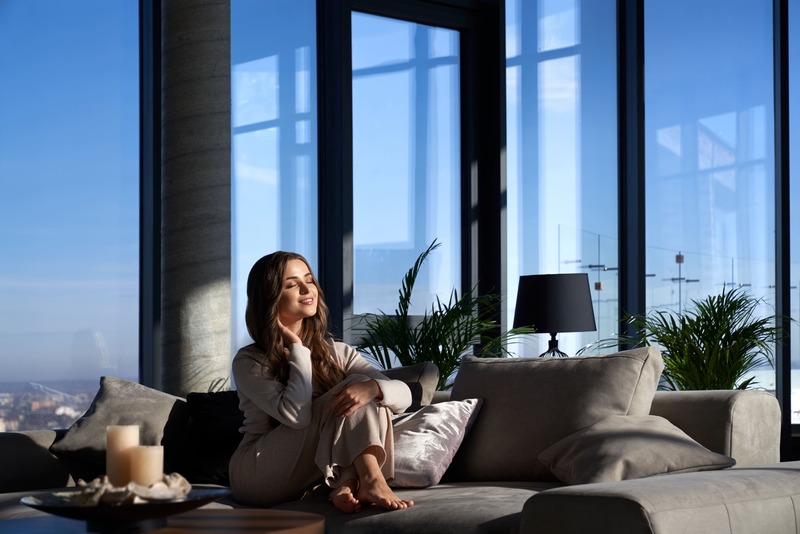
But with so many great options across Ho Chi Minh City, is Thao Dien truly the right fit for you?
1. Lifestyle & Community: Where Do You Belong?
If you're looking for a neighborhood that’s calm enough to unwind, yet vibrant enough to inspire your everyday life — Thao Dien might be just right for you. The atmosphere here invites you to both live and enjoy, where wellness, creativity, and open-minded living are part of the norm. With a tight-knit international community, local weekend markets, outdoor classes, and small networking events, Thao Dien feels less like a place to stay — and more like a place to truly belong.
If you’re drawn to the hustle and bustle, District 1 delivers the vibe of a vibrant city that never sleeps — with soaring high-rises, bars, buzzing restaurants, and crowds that keep the streets alive around the clock. District 3 is a softer version: central, tree-lined, and full of old villas that add character. Binh Thanh is changing fast with skyscrapers like Vinhomes Central Park rising above local markets and street food culture.
District 7 feels more like a well-organized suburb, clean and family-friendly, especially among Korean expats. Meanwhile, Phu Nhuan sits close to both downtown and the airport — convenient but more local and busier in feel.
Read more: Thao Dien – The Ideal Living Paradise in Ho Chi Minh City
2. Apartments & Affordability: What Can You Get For Your Budget?
Housing is where Thao Dien truly shines. Whether you're after a sleek riverside condo, a modern serviced studio, or a pet-friendly apartment with a garden view — the choices here feel curated for comfort and quality. Prices vary, but with stylish design, good maintenance, and top-tier amenities, the value is real.
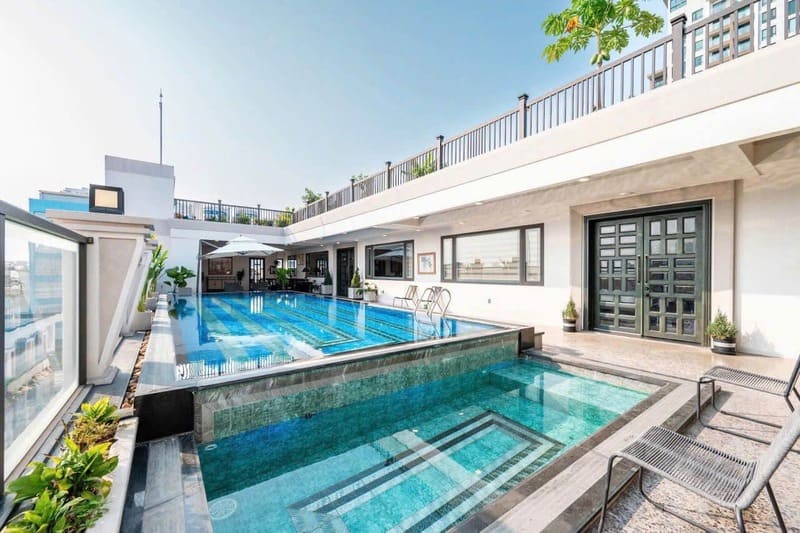
Compared to other districts:
- District 1 has the highest prices and often smaller, older spaces.
- District 3 offers more affordable units but fewer modern.
- Binh Thanh has new high-rises at better prices, though with less community feel.
- District 7 offers spacious homes and green streets, ideal for families.
- Phu Nhuan is budget-friendly but lacks the lifestyle appeal of Thao Dien.
If lifestyle matters as much as location, Thao Dien is well worth the investment.
Read more: Apartment Rental Costs in Thao Dien: The Right Price for You
3. Schools & Family Living: Where Can Kids Thrive?
For families, the first big question is often: Where will the kids go to school? In Thao Dien, the answer comes easy. It’s home to some of Ho Chi Minh City’s top international schools — like British International School (BIS), ISHCMC, and EIS — all just a short walk or bike ride away.
District 7 is also a good option for families, with reputable schools like SSIS and the Canadian International School. Districts 1 and 3 have fewer international schools nearby, which means longer commutes for families with school-age children.
That’s why many families choose Thao Dien — it makes everyday routines simpler, from school drop-offs to grocery runs to weekend park visits.
Read more: International Schools in Thao Dien – Advantage for Expats
4. Getting Around: Is It Easy To Commute?
One of Thao Dien’s biggest advantages is its rapidly improving infrastructure. Just across the Saigon Bridge, the area now benefits directly from the newly operational Metro Line 1, making travel to downtown districts easier than ever.
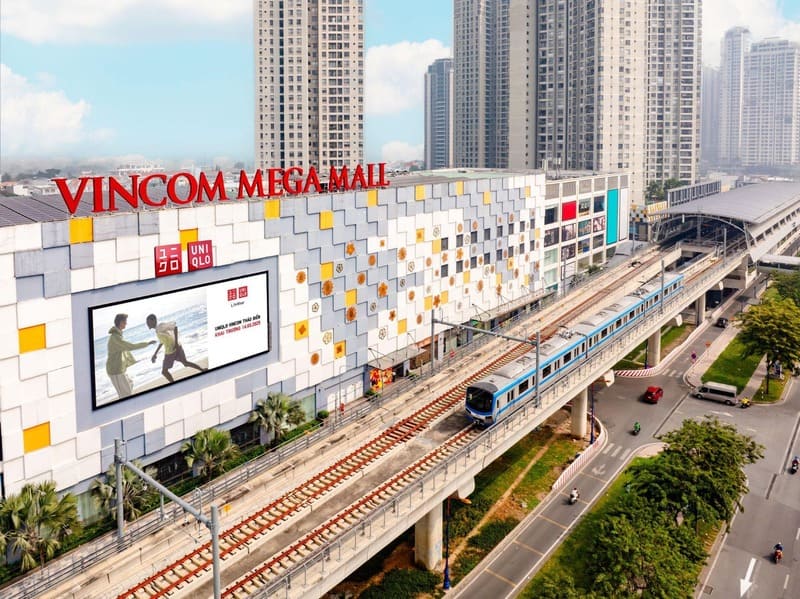
While rush hour traffic can still be a challenge, most daily essentials are within walking distance — from supermarkets and gyms to cafés and pharmacies.
- District 1 is highly walkable but often overcrowded.
- District 3 strikes a balance between busy and quiet.
- Binh Thanh connects easily to major roads.
- District 7 is farther out but well-planned, with wide, clean streets.
- Phu Nhuan sits between downtown and the airport, making it convenient for frequent travelers.
So if you're looking for a peaceful neighborhood with full amenities — but still want to stay close to the city’s pulse — Thao Dien offers the ideal middle ground.
Read more: Thao Dien – Ideal Urban Area with Modern Public Transport System
5. Food, Fitness & Weekend Vibes: What’s Life Really Like?
Life in Thao Dien feels like living in a mini village — but with kombucha bars, sushi bistros, and CrossFit classes. You can shop at organic markets on Saturday mornings, join a pottery class, or sip flat whites next to the Saigon River.
District 1 is all about nightlife and non-stop energy. District 3 and Binh Thanh are food heaven for street-food lovers. District 7 has the feel of a clean, quiet suburb, while Phu Nhuan surprises with affordable local gems.
If your perfect weekend means wellness, calm, and community — Thao Dien could be your lifestyle upgrade.
Read more: Why do expats choose to rent apartments in Thao Dien?
6. Safety & Surroundings: Where Will You Feel At Ease?
Many expats describe Thao Dien as not just safe, but genuinely serene. With gated residences, international clinics, and leafy streets, it feels thoughtfully built for peace of mind.

District 7 shares a similar calm with wide sidewalks and planned communities. Phu Nhuan stays under the radar but offers surprising quiet in pockets. Meanwhile, District 1, though central, comes with noise and the usual bustle of city life.
For solo expats, pet lovers, or young families, Thao Dien brings a sense of ease that's hard to find elsewhere in the city.
So… Where should you live in Ho Chi Minh city?
There’s no one-size-fits-all answer. Every district has something unique to offer. But if you’re looking for:
- A balanced, wellness-focused lifestyle
- Modern, thoughtfully designed homes
- A welcoming expat community
- Walkable streets and riverside charm
Then Thao Dien remains one of the best places to live in Ho Chi Minh City.
It’s more than just a neighborhood — it’s a lifestyle built around comfort, connection, and ease. Whether you’re moving for work, family, or a fresh start, finding the right space can make all the difference.
At JHouse, we’re here to guide that journey. Whether you choose Thao Dien or another area of the city, we’ll help you find a home that truly fits.
Start your search today — and take the first step toward living well in Saigon.
JHouse Content Team
The in-depth content development team on housing services for foreigners & Vietnamese in Vietnam. The content is simple, easy to understand, and logically arranged to bring readers useful topics and information from real experiences.
Serviced Apartments and Condominiums in Thao Dien: Pros and Cons
Serviced Apartments And Condominiums In Thao Dien: Which One Fits You Best?
Choosing between serviced apartments and condominiums in Thao Dien can be tricky, especially for expats navigating the vibrant rental market in Ho Chi Minh City. With both options offering modern living, great locations, and expat-friendly features, how do you decide which one fits your lifestyle and long-term needs?

In this article, JHouse will explore the key differences between serviced apartments and condominiums in Thao Dien, weighing their pros and cons to help you make a confident decision. Whether you're seeking comfort, community, or convenience, this guide will point you in the right direction — saving you time, reducing stress, and helping you feel at home faster.
1. What Makes Thao Dien So Appealing To Expats?
Before comparing apartment types, let’s take a quick look at what makes Thao Dien so appealing to expats. Located in District 2, Thao Dien has evolved into a top neighborhood for expats in HCMC. Whether you're a solo traveler, a digital nomad, or moving with a family, Thao Dien offers:
- A strong international community
- International schools nearby
- Quiet, green surroundings
- Walkable streets and modern infrastructure
- Pet-friendly parks and cafes
- Riverside charm with trendy restaurants and artisan markets
Beyond lifestyle, its strategic location just minutes from District 1 via Saigon Bridge or the new Metro Line makes commuting convenient while living standards remain high. From luxury condos to boutique serviced apartments, Thao Dien offers a wide range of housing options. Each is designed to meet the evolving needs of long-term expats looking for comfort, convenience, and community.
For long-term renters, choosing the right housing type is key to enjoying this unique lifestyle.
Read more: Thao Dien – The Ideal Living Paradise in Ho Chi Minh City
2. What Are Serviced Apartments In Thao Dien?
Serviced apartments are fully furnished rental units designed for short- or long-term stays, with hotel-style services like:
- Housekeeping (daily or weekly)
- 24/7 front desk or reception
- Utilities and internet often included
- On-demand maintenance
They typically come with modern interiors, kitchenettes, laundry areas, and basic amenities. Serviced apartments are perfect for:
- Expats on temporary contracts
- Digital nomads
- Those valuing convenience over customization
Read more: What is a serviced apartment? 5 important questions you need to know
Some serviced apartments in Thao Dien even offer rooftop pools, gyms, and riverside views, blending convenience with lifestyle.
| Pros | Cons |
|
|
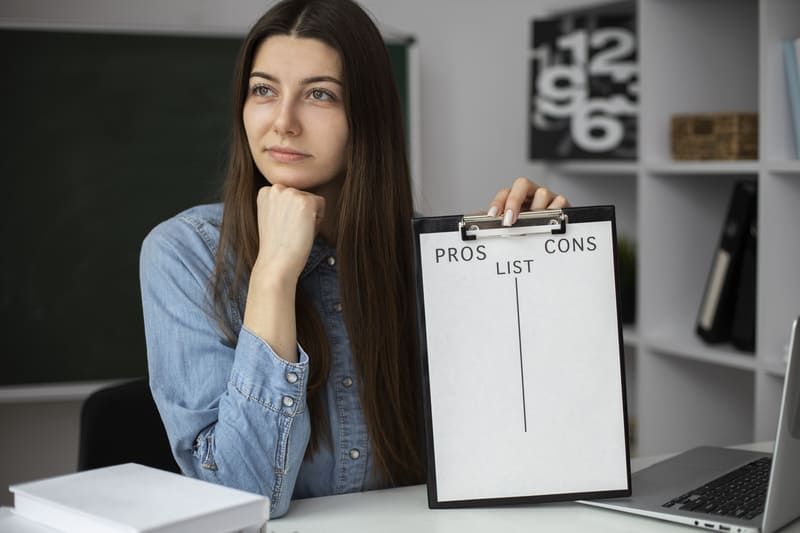
3. What Are Condominiums In Thao Dien?
A condominium (or condo) refers to a privately owned unit in a residential building. Condos in Thao Dien are known for:
- Spacious layouts (1 to 4 bedrooms)
- High-end finishes
- Private ownership (often rented directly or via an agent)
Most condo buildings feature:
- 24/7 security
- Underground parking
- Shared amenities like pools, fitness centers, and gardens
Ideal for:
- Families or couples staying long-term
- Those who want a more "residential" feel
- Renters who want to customize their space
Condos provide flexibility for personalization — you can bring in your own furniture, set up a home office, or even do minor redecorating (with landlord permission). Many buildings also foster a stable community atmosphere where neighbors know each other and longer tenures are common.
| Pros | Cons |
|
|
4. Side-By-Side Comparison: Serviced Apartments And Condominiums
| Criteria | Serviced Apartment | Condominium |
| Furnishing | Fully furnished with a hotel-like setup | Furnished or semi-furnished |
| Lease Term | Flexible (daily to monthly) | Long-term (6 months to 2+ years) |
| Utilities | Often included | Usually separate |
| Services | Housekeeping, reception | Varies by landlord |
| Maintenance | Managed by the property | Depends on the unit owner |
| Cost | Higher (all-in-one price) | Lower per sqm but more add-ons |
| Privacy/Customization | Limited | More control over layout, decor |
| Ideal For | Short-term expats, business travelers | Families, long-term residents |
Still unsure? Think about your priorities: flexibility, ease, and services point to serviced apartments; while space, customization, and long-term value lean toward condos.
5. Budget Comparison: what Can You Expect To Pay
In Thao Dien, rental prices vary based on location, amenities, and size:
- Serviced apartments: $600 - $1,500/month (studio to 2BR)
- Condos: $800 - $2,500/month (1BR to 3BR+)
Condos might seem more expensive upfront, but they offer more space. However, serviced apartments often include all services, making budgeting easier.
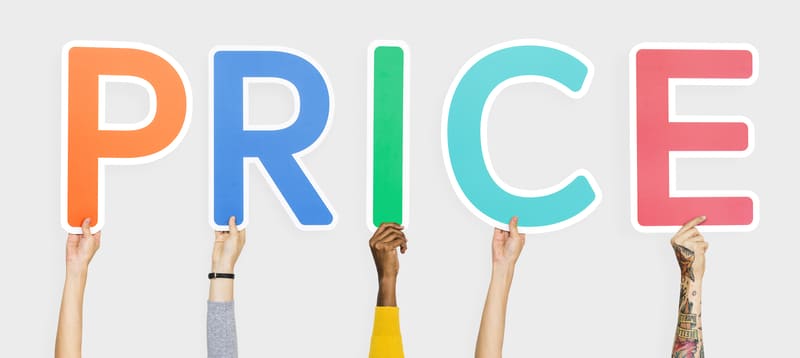
Keep in mind: your overall expenses with a condo may include internet, management fees, parking, water, and electricity. With a serviced apartment, many of those costs are already bundled into the rental fee, which offers better cost predictability — something especially useful for newcomers.
Read more: Apartment Rental Costs in Thao Dien: The Right Price for You
6. Lifestyle & Community
If you prioritize community connection and easy living, serviced apartments are often found in buildings with shared lounges, co-working areas, and weekly events. Great for social individuals or newcomers to Vietnam.
On the other hand, condominiums in Thao Dien cater to those who prefer a quieter, more residential atmosphere. You’ll find families, long-term expats, and more personalized home settings here. While community events may be less frequent, the feeling of “home” is often stronger.
7. Safety, Security, And Management
Both apartment types in Thao Dien offer good security. Serviced apartments often provide 24/7 reception and immediate response teams. Condos depend on building management and individual landlords – some are excellent, others vary.
Some high-end condos offer concierge services, smart home features, and app-based access control. However, inconsistencies in maintenance and response time from private landlords can be a drawback.
If you're new to Vietnam, a serviced apartment offers smoother onboarding. If you’re familiar with the city, condos provide more independence.
8. Legal & Contract Considerations
When renting a serviced apartment, the process is generally simpler. You'll typically sign a lease with the property management company or an individual landlord, often with lower deposits and more flexible stay durations. All costs, from rent to services, are bundled into a single monthly invoice, making it easier for tenants to manage their budget.
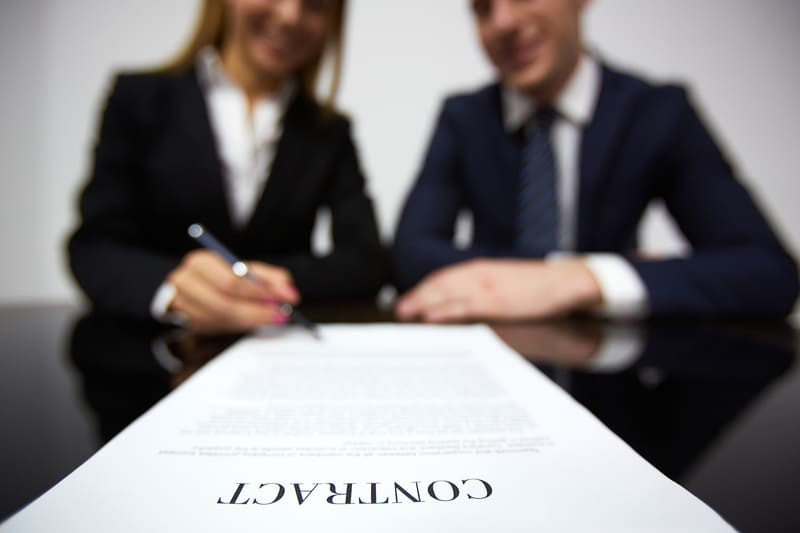
With condos, rental contracts may vary by landlord. Some might request notarized documents, longer commitments, and stricter rules on deposit refunds. Before signing the lease contract, make sure all terms are clearly outlined and in accordance with local laws.
Tip (for condos): Always confirm whether your lease includes management fees, internet, parking and other fees before signing.
Read more: Security Deposit Agreement: Free Download Sample Agreement 2021
Conclusion
Choosing between a serviced apartment or condo in Thao Dien comes down to your lifestyle, length of stay, and personal priorities. For flexible, all-inclusive living, serviced apartments are ideal — especially for newcomers, remote workers, or those seeking simplicity. For more space, privacy, and a true “home-like” atmosphere, condominiums may be the better fit, particularly for families or long-term residents who want to personalize their space.
Both options are plentiful in Thao Dien – a neighborhood loved by expats for its riverside serenity, vibrant international community, excellent schools, and modern conveniences. Whether you're new to the city or building a life in Vietnam, there's always a perfect home for you in Thao Dien.
Ready to take the next step? Let JHouse help you find the right apartment in Thao Dien today!
JHouse Content Team
The in-depth content development team on housing services for foreigners & Vietnamese in Vietnam. The content is simple, easy to understand, and logically arranged to bring readers useful topics and information from real experiences.
Apartment Rental Costs in Thao Dien: The Right Price for You
How Much Is Rent in Thao Dien? Find the Right Price for You
Apartment rental costs in Thao Dien are one of the top concerns for expats and long-term visitors planning a move to Ho Chi Minh City. Nestled in District 2, Thao Dien offers a peaceful escape from the city buzz while providing all the comforts of modern urban living — from riverside apartments and serviced studios to vibrant expat-friendly amenities. It’s a unique blend of convenience, comfort, and community that makes Thao Dien especially attractive for foreigners.
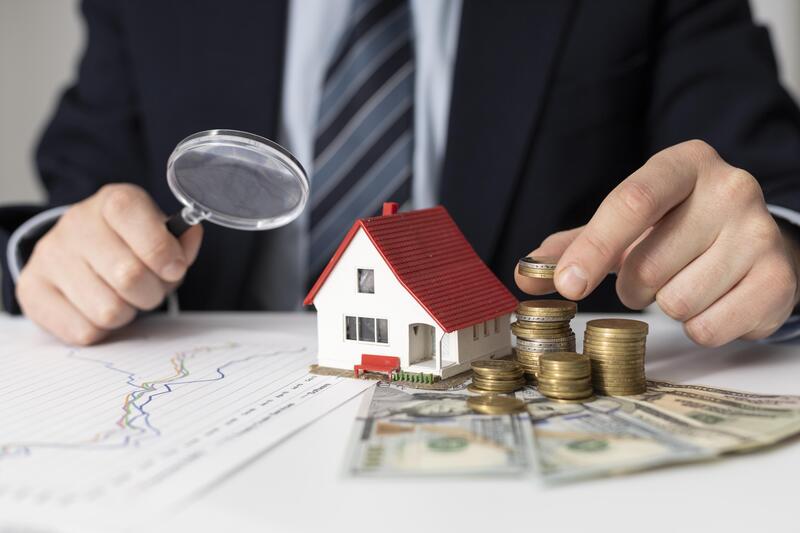
But what’s the real cost of living here? How do rental prices compare to other districts? Whether you're relocating alone, moving with family, or working remotely from Vietnam, this guide explores everything you need to know: average prices, what affects the rent, how to find affordable apartments, and tips for getting the best value. Let’s dive into why Thao Dien is worth every penny — and how to make your budget go further.
1. Understanding Rental Prices in Thao Dien
Thao Dien offers a wide range of rental options, from affordable studio apartments to luxurious penthouses with riverside views. Rent prices in Thao Dien vary depending on several factors:
- Type of Apartment: Serviced apartments, high-rise condominiums, or standalone homes.
- Location Within Thao Dien: Riverside, main streets, or quiet alleys.
- Amenities Included: Pools, gyms, housekeeping, parking, etc.
- Lease Terms: Short-term vs long-term contracts.
Generally, the average cost of renting an apartment in Thao Dien is:
|
Apartment Type |
Monthly Rent (USD) |
| Studio (25-40 sqm) | $400 - $650 |
| 1-bedroom (40-65 sqm) | $500 - $900 |
| 2-bedroom (70-100 sqm) | $800 - $1,500 |
| 3-bedroom+ (100+ sqm) | $1,200 - $2,500+ |
If you're searching for luxury options like duplexes or rooftop penthouses, prices can reach $3,000 or more. These units typically include panoramic views, smart home systems, private gardens, and high-end concierge services.
2. Key Factors Influencing Rent Prices
2.1 Amenities and Furnishings
Modern apartments in Thao Dien often feature Western-style kitchens, modern amenities, and stylish interiors. Furnished apartments usually have a slightly higher rent but save you from upfront furniture costs. Some premium units come with smart lighting, built-in air purifiers, and imported kitchen appliances — features that enhance comfort and justify higher prices.
Read more: Outstanding Amenities When Renting an Apartment in Thao Dien
2.2 Serviced Apartments
Looking for comfort and convenience? Serviced apartment rental in HCMC is popular among expats. Many Thao Dien serviced apartments offer daily housekeeping, front desk support, and even laundry services. Some upscale properties include gyms, saunas, and even community events like yoga or cooking classes, designed for long-term tenant engagement.
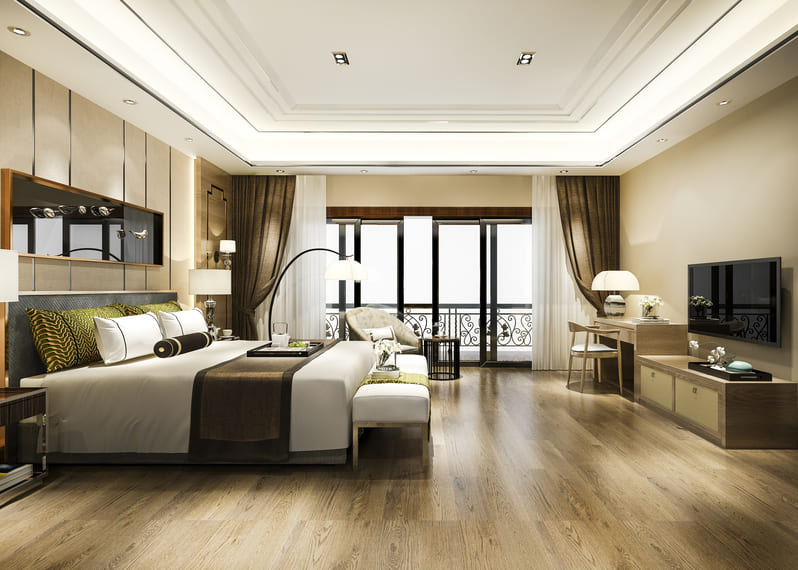
2.3 Lease Terms
Long-term contracts typically offer better rates. If you're planning to stay over 6 months, look for Thao Dien apartment rental costs for long-term stays for better value. Some landlords also offer discounts for upfront payments or leases longer than one year — a great tip for those staying indefinitely.
3. How to Find Affordable Apartments in Thao Dien
Worried about your budget? Here are practical tips to find the best value rental apartments in Thao Dien:
- Avoid peak season: Prices may rise during international school admission periods (July–August).
- Use local platforms: Browse Vietnamese real estate sites or expat groups.
- Work with a local agent: Especially companies like JHouse, which specialize in expat housing in Ho Chi Minh City.
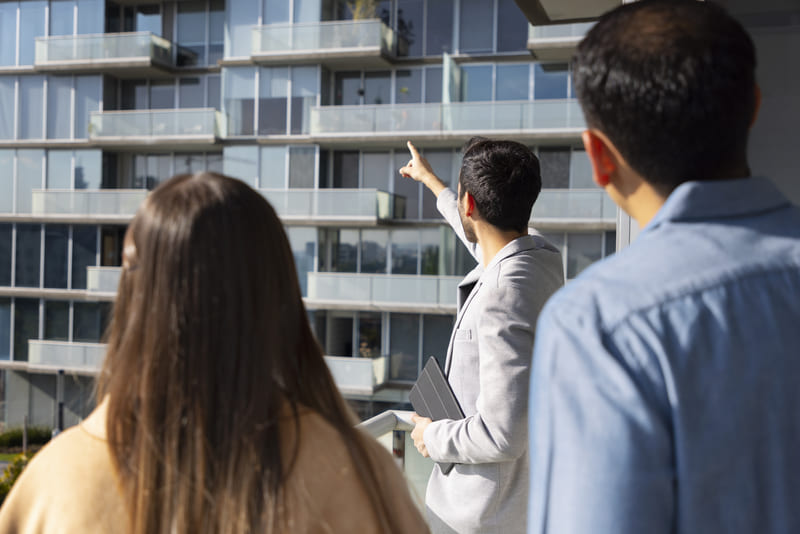
- Look outside the main streets: Side streets and alleys are often 10–15% cheaper.
- Compare multiple listings for similar units: Prices can vary by landlords based on furnishing, lease terms, or personal negotiation.
- Ask about hidden discounts: Landlords may lower rent for upfront 6–12 month payments.
- Consider management fees: These can add $50–$150/month. Older buildings or walk-ups often have lower fees than high-end serviced apartments.
- Consider bundled services: All-in-one rent deals (Wi-Fi, water, cleaning) can cut costs.
4. Is Thao Dien Expensive Compared to Other Areas?
Compared to central districts like District 1 or District 3, Thao Dien offers better value per square meter. While it's not the cheapest, the price includes a higher standard of living, less noise, and access to international amenities.
In neighboring areas like Binh Thanh or An Phu, prices may be lower, but tenants often compromise on green spaces, security, and lifestyle services. Thao Dien, on the other hand, balances value and quality — ideal for expats prioritizing comfort.
When looking at the cost of living in Thao Dien, rent is the biggest expense, but food, transport (especially Metro line 1), and services are reasonably priced, especially with many local options available. From $1 pho bowls to international fine dining, Thao Dien caters to all budgets.
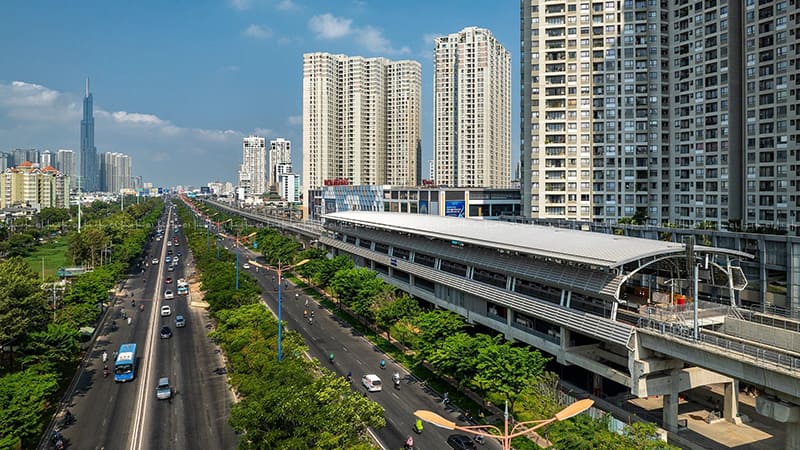
Read more: Thao Dien vs Other Districts: Which Is the Best Choice?
5. What’s Included in Rent?
Typical rentals in Thao Dien may or may not include:
- Utilities (water, electricity, Wi-Fi)
- Management Fees (security, garbage collection, building maintenance)
- Parking
Make sure to clarify these before signing a rental contract in Vietnam. Always ask if the price is all-inclusive or if extra fees apply. Also, ask about:
- Deposit terms and refund conditions
- Pet policies (if you have pets or plan to get one)
- Rules about overnight guests or hosting friends
Many buildings offer package deals where tenants can opt into bundled services — convenient and sometimes more affordable.
6. Price Comparison: Riverside vs Central Thao Dien
|
Location Type |
Price Impact |
| Riverside Apartments | +10% to +25% higher |
| Near International Schools | +10% higher |
| Quiet Alleys | Base Price / Lower |
Living by the river is a dream for many expats — it’s scenic, calm, and perfect for families. These areas often have better air quality, more privacy, and larger balconies or green spaces. They’re also more secure, but come with higher rental costs — usually 10–25% more.
If you're seeking better value, consider areas a bit farther from the river or near local markets. They offer a more local vibe, good walkability, and more affordable rents — without losing the charm of Thao Dien living.
Read more: Top Comfortable Apartments with Full Amenities in Thao Dien
7. Legal Tips & Rental Agreements for Expats
The rental contract in Vietnam may differ from those in countries you've lived in before. Some essential tips:
- Always read contracts carefully — check terms on deposit, early termination, and renewal.
- Ask for a bilingual contract (English-Vietnamese).
- Confirm who pays taxes — this can be hidden in the pricing.
- Ensure the landlord is the legal owner or has leasing rights.
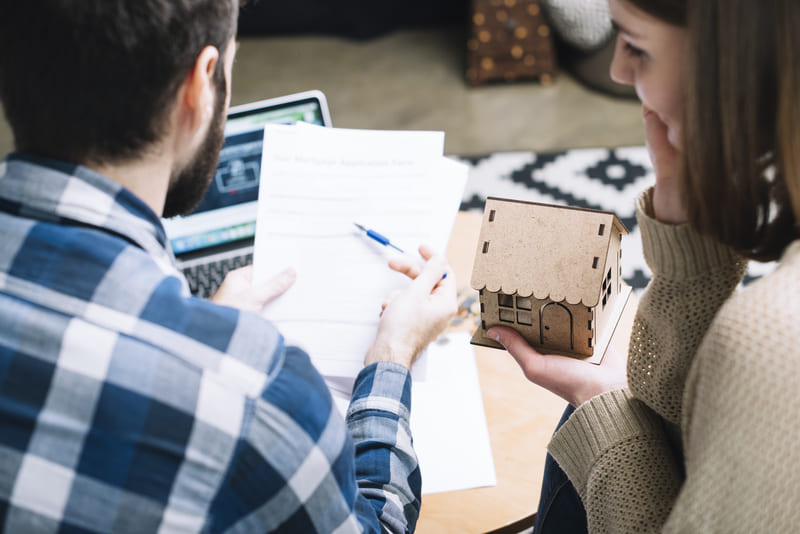
Extra tips:
- Request a walk-through inspection with photo documentation
- Get payment receipts — especially for deposits
- Use secure payment methods and always get a signed agreement
Agents at JHouse help navigate this process and avoid costly surprises. They also support visa compliance and registration requirements — crucial for foreign tenants.
8. Lifestyle Value: What You Get Beyond Rent
Choosing an apartment is not just about the price — it’s about lifestyle. Thao Dien is known for:
- Access to international schools (BIS, ISHCMC, EIS)
- Trendy cafés, yoga studios, gyms, and wellness spaces
- Farmers’ markets and organic groceries
- Pet-friendly parks and walking paths
You'll also find:
- Art galleries and creative workshops
- Language exchange meetups
- Riverside jogging trails and eco-friendly communities
This creates long-term value for those seeking a balance between work and life, especially for remote workers or families. The neighborhood’s walkability, safety, and abundance of social spaces make it more than just a place to sleep — it’s a place to live well.
Read more: Thao Dien – The Ideal Living Paradise in Ho Chi Minh City
9. FAQs About Renting in Thao Dien
Q: What’s the deposit required? A: Usually 1–2 months’ rent as a security deposit.
Q: Can I find pet-friendly apartments? A: Yes! Many serviced apartments in Thao Dien welcome pets, especially those with outdoor areas.
Q: Are short-term leases available? A: Yes, though the price per month may be higher.
Q: How do I sign a lease as a foreigner? A: You’ll need your passport and visa. A good agent can assist with leasing terms and paperwork.
Q: What platforms or agencies are best for expats? A: Agencies like JHouse focus on expat-friendly units, English support, and transparent pricing.
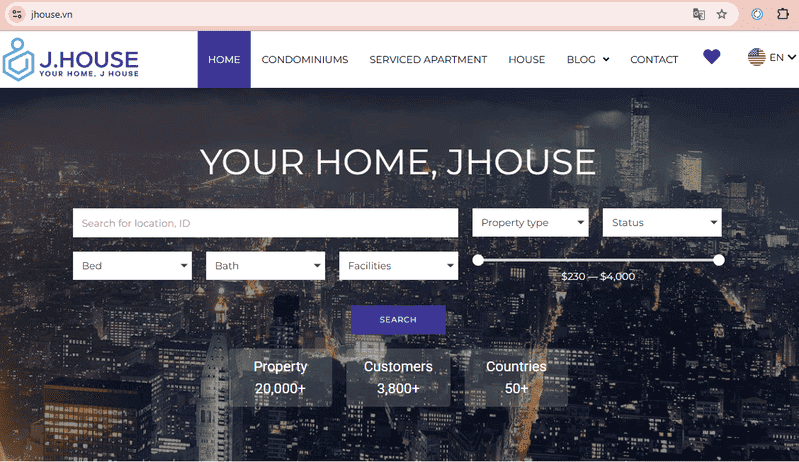
Q: Can I rent without visiting Vietnam first? A: Yes, many agents offer virtual tours and secure online contracts — perfect for remote relocations.
Final Thoughts: Finding the Right Price for You
Apartment rental costs in Thao Dien vary, but there's something for everyone. From cozy studios to riverside family homes, you’ll find options that match both your budget and lifestyle.
By working with a trusted local agent like JHouse, you’ll be supported by a professional, friendly team who understands the local market — making your home search easier and more efficient.
Remember to weigh both financial and lifestyle factors, ask the right questions, and thoroughly explore various options before making the decision. Don't just choose a place based on price — consider your daily habits, commute, comfort, and future plans.
JHouse Content Team
The in-depth content development team on housing services for foreigners & Vietnamese in Vietnam. The content is simple, easy to understand, logically arranged to bring readers useful topics and information from real experiences.

